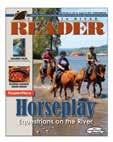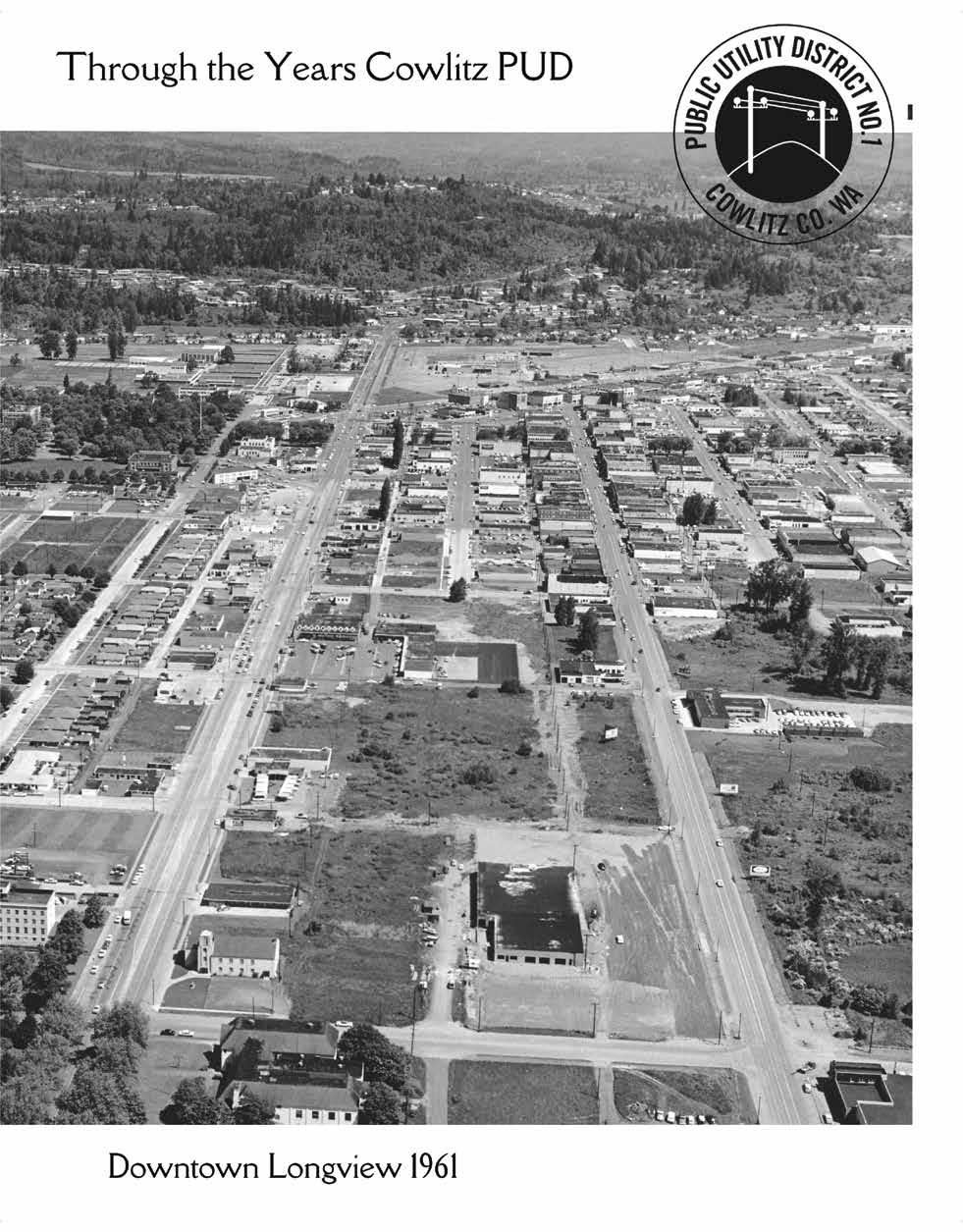












We lead this month with a personal invitation, urging you, our readers, to join us for a once-in-a-lifetime celebration next month, and to support our centennial efforts with purchase of our new book, Empire of Trees.
Hal Calbom has done an amazing job writing the monthly “People plus Place Then and Now” feature series, and the book project has been a labor of love for us both.
In partnership with Friends of Longview and with the support of many generous donors, we will be presenting a copy of the book to each and every graduating senior in the Longview high school Classes of 2023. These are meant as keepsakes and gifts for them from their community. Best wishes and congratulations to these students!
Our gala book launch variety show, “From Page to Stage” will celebrate three events: Longview’s Centennial, the launch of our Empire of Trees , and the 20th Year of Columbia River Reader! You’ll be entertained and amused, maybe even delighted (we hope) as we review favorite aspects from the paper over the years, and share excerpts and insights from the new book and our past year of reporting. And of course, we’ll be serving birthday cake and bubbly in honor of our beloved Planned City.
The proofreaders always say this, but I agree this month’s is a very rich and diverse issue. I’m sure everyone will enjoy reading the HaikuFest selections. We also present a two-page spread marking the 43rd anniversary of the eruption of Mount Saint Helens. This came about thanks to the Lee family, who feel a special affinity for the volcano.
Class
Publisher/Editor: Susan P. Piper
Columnists and contributors:
Tracy Beard
Hal Calbom
Alice Dietz
Creighton Goldsmith
Joseph Govednik
Gary Meyers
Michael Perry
Ned Piper
Perry Piper
Robert Michael Pyle
Marc Roland
Alan Rose
Alice Slusher
Greg Smith
Andre Stepankowsky
Paula Stepankowsky
Debra Tweedy
Judy VanderMaten
Editorial/Proofreading Assistants:
Merrilee Bauman, Michael Perry, Marilyn Perry, Tiffany Dickinson, Debra Tweedy
Advertising Manager: Ned Piper, 360-749-2632
Columbia River Reader, llc 1333 14th Ave, Longview, WA 98632

P.O. Box 1643 • Rainier, OR 97048
Office Hours: M-W-F • 11–3*
*Other times by chance or appointment
E-mail: publisher@crreader.com
Phone: 360-749-1021
Tracy takes us, as she often does, on an interesting, off-the-beaten-path day trip. Her story reminded me of the “rides” my family would often take on a Sunday. My dad was literally the driving force, station wagon keys, map, and camera in hand. There would be informational, roadside signs for us three kids to pose in front of, geological features to marvel at and, if we were lucky and well-behaved, a stop for ice cream cones or hamburgers along the way.
Our gardening columnist, Alice Slusher, poses an interesting “conundrum” about maintaining a lush green lawn versus replacing it with planting beds of flowers and shrubs. Ned and I tore out the lawn at our last house and installed raised bed gardens with flowers and vegetables, surrounded by a sea of pea gravel. It made sense, and WE liked it, but the neighbors thought we’d gone
nuts. When we moved five years ago, the new owners immediately put the lawn back in.
Our Centennial Celebration will combine a gala book launch and variety show on June 30 (see details, facing page). Please consider purchasing your book and reserving your gala seats early. We expect to sell out.

If you try to pre-order your book and gala ticket on CRR’s website and can’t make it work, I apologize. We are working on it. In a pinch, please call or come by the office and we can take your payment in person, by check, credit card, or cash — yes, we are “old school” and still accept greenbacks!
The excitement builds! Thanks as always for your support. We hope to see you June 30th!

Columbia River Reader is published monthly, with 14,000 copies distributed in the Lower Columbia region. Entire contents copyrighted; No reproduction of any kind allowed without express written permission of Columbia River Reader, LLC. Opinions expressed herein, whether in editorial content or paid ad space, belong to the writers and advertisers and are not necessarily shared or endorsed by the Reader.
Submission guidelines: page 38.
General Ad info: page 4.
Ad Manager: Ned Piper 360-749-2632.
Visit our website for the current issue and archive of past issues from 2013.

Columbia River Reader ... Helping you discover and enjoy the good life in the Columbia River Region, at home and on the road.






A century ago was a time of great events and changes to Cowlitz County. Some triumphant, some tragic, all of which made an impact that forever changed our county and region.

On January 3rd, 1923, the most devastating bridge disaster in Washington State history rang in the new year with tragedy. Nearly 20 people, many unaccounted for, perished in the Allen Street Bridge collapse. Longview became a new planned city on land that required immense diking to make it suitable for habitation. This city would house the workers of the “World’s Largest Sawmill” on the Columbia River.

The town of Ryderwood, which housed LongBell loggers and their families was also created at this time.

Political winds changed as the county seat moved to Kelso from Kalama, where it was located since 1873.
A major unfinished portion of the Pacific Highway was completed in Cowlitz County connecting a continual linkage on paved road from Mexico to Canada. The year 1923 was indeed the year that changed our county forever.
As described in the last episode, the Corps was anxious to start their homeward journey after spending more than four months at the mouth of the Columbia. While they knew snow in the Rocky Mountains would be a major obstacle and, thus, planned to leave on April 1, 1806, they left two weeks early, hoping to escape the dismally wet conditions at Fort Clatsop. That was a mistake, since the spring salmon run they had counted on was late and, therefore, no fish were available from the Indians at The Dalles. The men spent two weeks camped across from the Sandy River to obtain enough meat to make the trip to the Nez Perce villages in Idaho.

Anyone got a snowplow?
When they reached the Nez Perce villages in early May, they were pleased to find their horses still there. However, the Indians told them it would be at least a month before they could cross the pass due to deep snow. So the next six weeks were spent waiting. Everyone was concerned about the delay, since they wanted to get back to St. Louis that year, and a long delay might mean having to spend another winter at Fort Mandan in North Dakota.
On the road again!
Finally, on June 15, they started the dreaded journey across the Rockies. The Indians told them it was still too early, but as Lewis wrote, “every body seems anxious to be in motion.” Clark wrote, “I Shudder with the expectation with great dificuelties in passing those Mountains.” They knew it could take a week to make the crossing. If the snow still covered everything, there would be no grass for the 65 horses, and without the horses they were doomed. A day later, as the horses grazed in a meadow surrounded by snow five feet deep, they realized they had left too soon. Still, they proceeded on another day and found the snow was ten feet deep and the trail was buried.
Benumbed and bewildered
Lewis wrote, “here was winter with all it’s rigors; the air was cold, my hands and feet were benumbed. We knew that it would require five days to reach… Colt Creek… short of that point we could not hope for any food for our horses as the whole was covered many feet deep in snow. If we proceeded and should get bewildered in these mountains the certainity was that we should loose our horses and… we should be so fortunate to escape with life.”
That same day, Lewis wrote, “we therefore came to the resolution to return with our horses while they were yet strong and in good order and indevour to… procure an Indian to conduct us over the snowey mountains… knowing from the appearance of the snows that if we remained until it had desolved sufficiently for us to follow the road that we should not be enabled to return to the United States within this season.” Thus, they began a “retrograde march,” after placing most of their supplies in an overhead cache made of poles hung between trees. The only things left to trade with the Indians were their guns. A week later, under promise of two rifles, some Nez Perce guides were hired and the journey began again, three months after leaving Fort Clatsop.
On June 25, Lewis wrote, “the Indians entertained us with seting the fir trees on fire. They have a great number of dry lims near their bodies which when set on fire creates a very suddon and immence blaze from the bottom to top of those tall trees… This exhibition



Michael Perry enjoys local history and travel. His popular 33-installment Lewis & Clark series appeared in Columbia River Reader’s early years and helped shape its identity and zeitgeist. After two encores, the series has been expanded and published in a book. Details, pages 47.
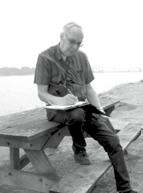

In AprIl 2021 we Introduced A revIsed versIon of Michael Perry’s popular series which was expanded In the new book, Dispatches from the Discovery Trail, edited by Hal Calbom and published by CRRPress. It includes an in-depth author interview and new illustrations and commentary.
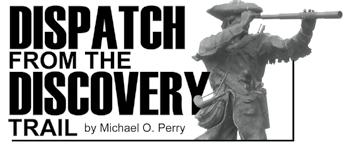









Lewis & Clark from page 5
reminded me of a display of fireworks. The natives told us that their object…was to bring fair weather for our journey.”
Adieu to the snow
The Indians knew where to find meadows on south-facing slopes that would be clear of snow and thus provide newgrown grass for the horses. While the snow was still many feet deep, it was solid enough for horses to walk on without sinking in more than a few inches most of the time. However, once in a while the snow would not support a horse and it would sink in to its belly. Finally, on June 29, they “bid adieu to the snow,” and a day later reached Lolo Hot Springs. The men spent the next two days relaxing and recovering from the hard journey.
Divide and conquer

Before leaving Fort Clatsop, Lewis and Clark had made plans for the return trip. They wanted to explore different routes, so on July 3 the party split up. Captain Clark, along with Sacajawea and most of the party, went up the Bitterroot River, back to Camp Fortunate where they had found Sacajawea’s tribe the previous year. However, this time nobody was to be found, since the Indians had gone east to hunt buffalo.
Sgt. Ordway “caches” in Clark’s group continued down the Jefferson River until reaching Three Forks on July 13. At that point, Sgt. Ordway and a detachment recovered the canoes they had cached the previous year and went down the Missouri River to Great Falls. There they would retrieve the material cached in 1805, and then continue on down the Missouri to meet up with Captain Lewis.
… in an overhead cache …
The Expedition learned the technique of “caching” excess gear and supplies from the French Canadian “engages,” (hired hands), many of whom they’d met and engaged, along with Charbonneau, at the Mandan Villages. Pierre Cruzatte was often given the responsibility of directing the work. Typically, caches were underground, beginning with a hole around two feet in diameter, which was systematically widened and deepened, then filled with heavy baggage and excess supplies to be picked up later. Unfortunately, for some unknown reason the structures didn't all meet Cruzatte's assurances. The cache at the mouth of the Marias River collapsed, ruining most of the contents, which included souvenir furs belonging to Lewis and some of the men, as well as many other personal possessions. The cache at the upper portage camp at the Falls of the Missouri was damaged by spring floodwaters that destroyed all of the plant specimens Lewis had collected between Fort Mandan and the Great Falls.
Clark mosies to Bozeman…
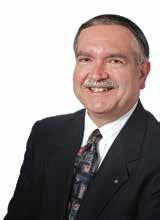


Clark took the rest of the party up the Gallatin River to present-day Bozeman, Montana, and followed Sacajawea’s directions to Bozeman Pass, leading to the Yellowstone River. Everyone planned to meet at the junction of the Yellowstone and Missouri Rivers.
…while Lewis goes to Great Falls

With the Louisiana Purchase in 1803, President Jefferson bought all the land that drained into the Missouri. Thus, knowing the Missouri River’s northernmost tributary was important, Captain Lewis wanted to see where the Marias River’s headwaters were. He and nine men took the Indian’s overland route from Lolo Pass to Great Falls. Six men were left at Great Falls to make carts and help portage the canoes Sgt. Gass’s detachment would bring down the Missouri. On July 11 Lewis took three men and headed north to find the headwaters of the Marias River. Next episode, we will learn more about that deadly journey.
•••









DEAR MISS MANNERS: Eight months ago, my husband and I were introduced to a very lovely couple at a fundraiser. They are probably 20 years older than we are, extremely wealthy, interesting, generous and engaged with their community.




In our initial meeting, we enjoyed each other’s company for more than an hour, and they very graciously invited us to spend the night at their nearby residence rather than make the hour-long drive back to our home. Then when we departed, they gave us their home phone number to contact them and meet again.
We never called. Not because we weren’t interested, but honestly, it just felt so awkward to call their house (which is undeniably a generational communication difference).

Now we feel bad for not calling them, as they are so interesting and we would love to see them again. Is it too late to reach out? And if it’s not, could I reach out via email instead, or do I need to act like an actual adult and call their house as they suggested?
GENTLE READER: Normally, Miss Manners tries to take the point of view of her readers, whether they are attempting to solve a problem or are instead creating one. And she will get to yours.


But in this case, her immediate sympathy is with that hospitable couple. They are thinking, “We thought we had such a good time with that young couple, and I thought they liked us, but apparently not. We certainly urged them to keep in touch. But we can’t run after them, so we’d better let it go.”
What they are not thinking is, “They must be scared of us because we’re older and richer.”
But that is the impression you left -- that those were the terms in which you saw them, and not as interesting people who wanted to be friends.
So yes, you should call, you should apologize for not having been in touch sooner and you should refrain from explaining why —- because it is insulting that you reduced them to generational and financial stereotypes.
And you should issue a warm invitation to them. Do not tell Miss Manners that you will not do so because you can’t entertain in the same style as they do. That would only mean that you were repeating your error by assuming that they are too old or too rich to enjoy good company unless the style of living is exactly like their own.
from page 8

DEAR MISS MANNERS: A relative sent me a card for my birthday with a single lottery ticket, just for fun. I didn’t end up winning anything. Is a lottery ticket considered a gift, and if so, should I write a thank-you note? Would the answer change if I had won something?
GENTLE READER: Yes and yes. As it is, you could write, “I had such fun thinking how you and I could enjoy all that money.” Had you won, Miss Manners suggests something more like, “I know you have been wanting a new car, and I’m so happy to now be able to get it for you.”
DEAR MISS MANNERS: Can you please tell me how to respond when family or close friends recommend a particular TV series to watch, only for me to find out that the show is full of situations and dialogue that go against our moral standards?

I don’t want to hurt anyone’s feelings by telling them that we objected to their suggested program.



GENTLE READER: Are they close enough for you to have a civil discussion about what bothers you? If not, “It’s not really our taste” should be enough, and Miss Manners reminds you that there is no accounting for taste.

DEAR MISS MANNERS: My best friend asked me what I was doing for my birthday. I told her that I wasn’t sure. I had been thinking about a dinner party, but it may be very costly. My mother always told me if you are going to have a party, then you need to pay for everyone. My friend disagrees and says that I should just charge a price for the party and forget about it. What is the rule here, or is there one?
GENTLE READER: You know the rule; your mother taught it to you. But you want additional advice. Very well. Miss Manners advises you to invite your guests to tea instead of dinner; it is not costly.



Dear Miss MANNERS: Is it still considered rude and stupid to wear a hat indoors?
GENTLE READER: Rude? Yes. Stupid? Depends on what is written on the hat.
•••

Please send your questions to Miss Manners at her website, www.missmanners.com; to her email, dearmissmanners@gmail.com; or through postal mail to Miss Manners, Andrews McMeel Syndication, 1130 Walnut St., Kansas City, MO 64106.







That’s the sound of my joiner plane as it slices paper-thin shavings of maple. Every cut brings back a memory — or a regret — about my late younger brother, Pick.
I enjoy using hand tools when I work with wood. It’s so tactile and somehow brings you back to the place where the trees grew. You appreciate the unique grain and character of each plank far more than you do by machining it.
In this case, though, the wood has extra special meaning.
The planks are from trees that Pick logged on his property overlooking Hood Canal. The beautifully-grained
wood was intended for the interior window sills and hand railings of the custom house he started building there but never quite finished.
The thick slabs of maple — still roughedged with chainsaw marks — were still lying on the entryway floor, unused, when he died in 2016, three months short of his 56th birthday.

I recovered that wood before selling the house, and it has been stacked in my garage for seven years. I had been saving it for a memorable project. And so now I’m turning some of it into kitchen cabinets for my daughter’s home in Bothell.
As I work the wood, I think of how Pick labored to turn the raw logs into thick planks. It had to be hard work. Maple is like rock, and its irregular grain makes machining and truing up difficult.
Igor — Pick’s given name — was like that, too. He was a force of nature, with rock-hard muscles, hands like sledgehammers and a mind and character often unyielding to sound advice and common sense. Imagine him as a Paul Bunyan on steroids. To say he was his own man so dramatically understates the case. He was loud, often politically incorrect, worked and played hard and roared down country roads on the loudest, biggest Harley-Davidson he could buy. He was an indefatigable risk taker, sailing the oceans and climbing sheer cliffs. It was so poetically unjust that he
died from cancer, slowly withering away instead of perishing on some perilous adventure.
Pick had dyslexia and was never bookish, and our age difference (4 years) kept us from ever really becoming close. So I’m glad to have those planks of maple. They’re like continuing to have a piece of him around.

As I plane, saw and shape those boards into finished cabinets, I recognize that the lumber is his posthumous contribution, a joint project that transcends his death.

I’ll think of Pick every time I look at the finished cabinet doors. Their swirling, irregular and often tortuous grain patterns will be a memorial to his wild and unfettered character.
A far better monument than any grave marker..
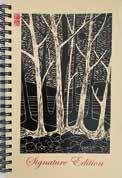
This northern shore was packed with fishing towns, canneries thick as sea-lice on a spawned-out silver hen. Skamokawa to Baker Bay, palaces of red boards arose to slime, cut, and can the millions of salmon from fish-trap, wheel, horse-seiner, or boat. Towns, to house the Finnish fishers and Chinese canners. Graced with post offices, stores, schools, even telephone lines, they grew out of the wilderness ‘twixt high tides and high firs. Bosses’ mansions looked down on raw new streets, hopeful spokes of human longing and desire. Megler, Knappton, Frankfort, Altoona, Cottardi, Dahlia, Pillar Rock... and chief among them, beautiful Brookfield.
Brookfield began in 1873 with a cannery manned by Croatian fishermen. Occupied a pretty bay between Harrows Creek and Brookfield Point. No roads, only mail-boats, until log trucks came. Soon the old-growth ran out, both in river and hills. Cannery abandoned, steamers didn’t stop any more. School closed in ‘45, P.O. in ‘53. In ‘57, Crown Zellerbach bulldozed the town, and that was that.
We used to pore over foundations, pick through moss and ivy-strewn paths among the giveaway daffodils and snowdrops, looking for signs: shards of blue willow ware, keys, an old toy, a marble; rusted stove here, broken front steps over there. Imagining lives once lived, loves long gone. You can still get to Brookfield, through the loggedoff hills. But all you’ll see is dredge spoils and stumps, and the only signs on the forest floor are the shiny ones left by slugs and snails.

Thanks to the isolation of the North Pacific Coast of North America, the Columbia was among the last major rivers to be mapped and explored. Its headwaters, high in Canada, confused explorers for decades, flowing in a direction seemingly opposite to its eventual course. Two-fifths of the river is in Canada, and relatively isolated. Early explorers in the late 1700s and mariners forever after were daunted by the fearsome Columbia Bar and the area’s reputation as “Graveyard of the Pacific,” where hundreds of ships and their crews have perished over the years.
On this page we excerpt poems, pictures and field notes from our own “Field Guide to the Lower Columbia River in Poems and Pictures,” The Tidewater Reach, by Gray’s River resident and renowned naturalist Robert Michael Pyle, and Cathlamet photographer Judy VanderMaten.
The two dreamed for years of a collaborative project, finally realized when Columbia River Reader Press published color and black and white editions of The Tidewater Reach in 2020, and a third, hybrid edition in 2021, all presenting “a different way of seeing” our beloved Columbia River.
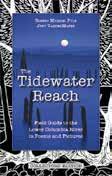

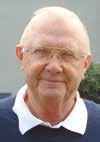






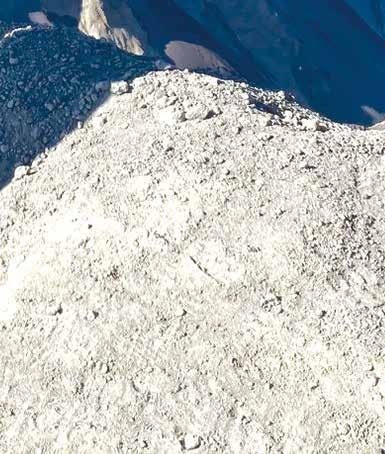

Some say the mark of a good leader is how well his team can carry on without him in a pinch. CRR’s HaikuFest Founder and Chief Judge can be proud of his team of judges. Being pressed into service for the first time without Gary actively at the helm put them to the test. Confined to a Honolulu hospital and undergoing medical treatment, Gary entrusted Creighton Goldsmith to coordinate with the panel, and sort and evaluate haiku entries, keeping all the balls in the air for HaikuFest 2023.



Back in 2012, our real Chief Judge, retired Marine Lt. Colonel Gary Meyers, recruited me to be a Haikufest judge in the trenches, then to be rewarded with a Japanese Teishoku dinner at Honolulu’s legendary Gyotaku Restaurant. Gary had a medical setback a few weeks ago that landed him in Honolulu’s Tripler Army Hospital where he’s doing well. Gary and I go back 30 years to when he was at Northwest Airlines at Honolulu Airport, and I was with U.S. Customs. Gary’s tough — he spent two tours in Vietnam, in the jungle rather than the Officers Club. And never one to procrastinate, Gary married Sue, his partner of 30 years, four weeks ago.
Now it turned out that I was only a provisional Haikufest judge in Gary’s mind, until 2020 when he and I and my wife, Patty, were in Tokyo at the same time! Gary said I had to visit the Basho Haiku Memorial & Museum in Koto City if I were to be a “Real Haiku Judge.” This involved an exhaustive, forced march through the streets and subways of Tokyo, at one point descending 42 meters underground at Roppongi Station, only to march to the street with no elevator. It was one of those life events I was happy to scratch off my bucket list!
We had three categories this year: Open Haiku and Longview Centennial Haiku and a last-minute Keiki (Kids’) Haiku. A huge “Thank You!” to Mike and Linda Ryan at an undisclosed location near Tokyo; Mary Cappabianca of Kailua, Hawaii, and Peter Glick, of Honolulu, for their support, guidance and votes for this 2023 contest. We’ve strived to reach the same level of excellence that Gary Meyers instilled in us as Haiku Judges! Aloha!
Thanks to everyone who submitted haikus this year. Haikufest founder and Chief Judge Gary Meyers was excused from duty with a note from his doctor. We send our greetings and wish him continued improvement.
Daffodil surprise, Nature's magic in full bloom, Spring's sweet symphony.

LaNay Eastman Clatskanie, Ore
An eerie darkness
A child weeps in the forest Rescuers find her.
Ray Iwamoto
Honolulu, Hawaii
Paper, made by hands Where will it light in our world? Bound for distant lands.
Ken V. Thomas St. Helens, Ore.
Thick green shoots rising Await yellow blooms their turn
Tiny suns to nod
Glenda Johnson Longview, Wash.
spring morning sunbeam fades to gray, burst of showers gift of a rainbow
Mary Hubbard St. Helens, Ore
A shroud of fog hides
All but the tallest tree tops
From the logger’s saw P.J.Peterson Longview, Wash.
Where else would you go
To see busy-tailed rodents
With their own bridge?
Karin Kaczmarek
Azalea in May, Leaves fading green to silver, Tasty lace bug feast.
Keith Simmonds Rodez, France
March gray sky morning
But in twilight you may see Glimpse of summer sun
Alicia Shepard Longview, Wash.
Darkness ebbing in
Like ink clawing at fibers
Of a tattered cloth
Adele Brown Longview,Wash.
Spring, cold and dreary!
Winter was miserable
Sunshine, please come soon
Karin Kaczmarek Long Beach, Wash.
twelve hungry robins light on lawn, listening for worms underground
Carolyn Caines Longview, Wash.
A program for K–6th graders in Battle Ground, Wash.
Cold snowy winter
Warm and cozy campfire
The exact temperature
Kevin Rose, Age 10
Snow is white and bright I play in snow all day long Sledding is so fun!
Tristan McClellan, Age 12
Falling autumn leaves
Tug-a-wars of winter spring
Slow the in between
Rosemary Wadleigh, Age 11
Bunches of clovers
Scattered families like freckles
On a full cheeked queen
Lyla Barnic,. Age 13
Busy city noise
Wait! Stop at bus stop in rain I can find beauty.
Cormac Barnick, Age 10
Green flash, flash of green
Best scene white gone at sunset green flash gone.
Owen DuBay, Age 9
Chickadee, dee, dee
Tiny bird, gray, black, and white Living in the woods
Mahaela Dubay, Age 10
Honorable Mention:
Lucy Meindersee, Age 11
Sawyer Hahn, Age 13
Logan DuBay, Age 11
Jamie Maurer, Age 9
One hundred years old
Classical design of streets
Fashioned like a wheel.
John Hanna
from Moon’s perspective
Longview’s past one hundred years just a passing breeze
Marc Imlay
Clarity of view
Prosperity and success
Long live the good life
Margi Toutle
Festival of lights for the Longview Centennial ... a celebration
Keith Simmonds
With timber at heart
A visionary came forth R.A. Long view born
Phillip Nolan
Blueberry Spritz
Serves one

4 blueberries
1-½ oz. Empress gin
½ oz. St. Germain
Elderflower liqueur
½ ounce lemon juice
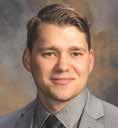

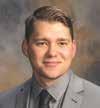







1-ounce simple syrup
2 oz. or more Prosecco
Lemon slice
Muddle the blueberries in a shaker with simple syrup. Add the gin, elderflower liqueur, lemon juice, and simple syrup. Stir. Add ice and shake — strain into a tall bucket glass over fresh ice and top with Prosecco. Garnish with a lemon wheel.

Gnocchi with Butternut Squash
Serves 3
1 lb. good quality potato gnocchi
1 cup pureed butternut squash
1 cup kale or spinach

½ cup pancetta - diced

1/3 cup Pecorino Romano, shredded
¼ cup butter
1/3 cup microgreens
Extra virgin olive oil
Salt and pepper
Fry washed and dried spinach or kale leaves in olive oil at 375 degrees until crisp. Set on a paper towel to drain. Peel and cut one butternut squash into 1-inch cubes. Toss in olive oil until lightly coated. Roast the cubes on a cookie sheet at 375 degrees for approximately 40 min. or until soft. Puree squash in a food processor until smooth. Salt and pepper to taste. Set aside one cup and keep it warm. Put one tablespoon olive oil in a frying pan and cook the pancetta until lightly browned but still chewy; set aside. Cook gnocchi in boiling water according to package directions. Drain. Melt butter in a frying pan. Add the cooked gnocchi and fry until brown and crispy on both sides.
Smear 1/3 cup pureed butternut squash onto each of the three plates. Divide gnocchi into three and add on top of the squash. Garnish with pancetta, fried kale or spinach, and Pecorino Romano. Crown with micro greens and add salt and pepper to taste.

Spring is in the air, a perfect time to explore and discover the sights and sounds on Highway 12 between Salkum and Morton, Washington. Stop along this almost 20-mile stretch to enjoy a bubbling brook, a lakeside playground, scenic vistas, historic murals, and much more.

My husband, Steve, and I left the house around 10am, headed north on Interstate 5, and took Exit 68 toward Morton. The first thing we passed was Papa Bear’s West Family Restaurant & Bar on the right side of the road. When following my journey, stop and have breakfast here; it is a great way to begin your day. The little town of Ethel is just off the highway, and although it is a very pretty area to drive through, there is not much to stop and see.
First stop: Stowell Road in Salku. We drove half a mile off the highway and pulled up beside a lovely little creek. There was ample room to set up a portable chair and savor the moment. Soon, we were back on the road.
After crossing the long bridge spanning picturesque Mayfield Lake, make a left onto Beach Road and follow it down to the parking lot. Here you can go for a dip in the lake, let the kids play on the playground, or launch a boat to go fishing, tubing, or water skiing.

Back on the road, continue east until you reach DeGoede Bulb Farm and Garden. This nursery is an excellent stop for all your gardening supplies. It is also an incredible place to peruse the seasonal flowers on the grounds.

Next up the road: Pan-American Berry Growers – Mossyrock Farm Stand
The Farm Stand offers everything blueberry: syrup, honey, jam, candies, pies, BBQ sauce, mustards, and of course, fresh blueberries. The Blueberry Farm Stand is typically open July 4 – Labor Day, Mon-Sat, 9am–6pm, and Sunday, 10am–6pm. Call 360-983-3525 to ensure they are open before stopping by.
Further down the road, stop at the Riffe Lake Overlook and take in the stunning views. The area was once home to two pioneering communities, Riffe and Kosmos. Riffe was established in 1898, and Charles W. Hopkinson built a sawmill and post office in 1904, establishing Kosmos; these two communities experienced their peaks during the 1940s when railroad-tie mills and logging thrived in the vicinity.
Steve and I enjoyed the valley views while continuing toward Morton, a town that feels like something out of the Wild West. Visit the Historic Railroad Depot Museum and the Morton Historical Museum. They were closed during our visit but are open now. The museum is open Mon-Sat, 10am–3pm. Access to the Railroad Depot is via the Historical Museum; the docent will unlock the doors for you to peruse the inside. The Morton Depot is the only remaining structure on the historic Tacoma Eastern Railroad, later known as Milwaukee Railroad National Park Rail Line.
On our outing, we meandered around Morton and discovered two very cool murals depicting an old version of Morton’s Fire Rescue Dist. 4. Standing at the end of Main Street downtown, I envisioned a movie maker creating an old western film.

It was lunchtime, so we headed into Rivers Coffee House & Bistro. The staff was friendly, and since the weather outside was still a bit chilly, I ordered the Briar Green Cocktail. The hot cider with cinnamon bark syrup, a swirl of caramel, and an ounce of Basil Hayden warmed me up from the inside out. I ordered one of the more popular paninis, the Tatoosh Turkey. This delicious sandwich was made with sliced turkey breast, Swiss cheese, roasted bell peppers, bacon, mayo, and pesto, all between two pieces of focaccia bread, grilled on a panini press. I ordered mine without the peppers, and it was delicious.
The almost 20-mile drive between Salkum and Morton has plenty to keep your interest for the day. Enjoy the drive, savor the views, and taste the local fare.
•••
Tracy Beard writes about luxury and adventure travel, traditional and trendy fine dining and libations for regional, national and international magazines. She is in her eighth year as CRR’s “Out & About” columnist. She lives in Longview, Wash.
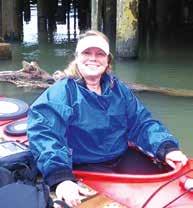
















 Story and photos by Joseph Govednik Cowlitz County Historical Museum Director
Story and photos by Joseph Govednik Cowlitz County Historical Museum Director

Spring is in the air, and with that you can expect to see more fun activities at your local museums. For example: the City of Rainier and the Rainier Oregon Historical Museum (ROHM) are ready to welcome visitors with some new outdoor and publicly-accessible historical treats.
Formed in 2015, the Rainier Museum has made great leaps in its short history. The museum has secured gallery space at City Hall, and recently participated in celebrating the city’s recently-installed historically themed banners along “A” and “B” Streets which highlight a mixture of Rainier’s celebrations, veterans’ recognition, and historical imagery.
Another highlight for visitors will be the installation of 11 kiosks, each with up to four historical pictures of what life was like along the waterfront in the early 1900s. The terminus for the kiosks is planned to be one block from the site where the new ROHM will be constructed, which will secure additional dedicated space to preserve Rainier’s history.
After enjoying the banners and walking through this compact downtown, please come visit the museum located upstairs in the historic Rainier City Hall at 106 West “B” Street. Inside, you will enjoy exhibits highlighting the industries that shaped Rainier, such as logging, soap manufacture, and, of course, maritime influences.
The museum is building a reference library of local high school yearbooks so you may browse the existing collection or consider donating a copy to fill any voids in the collection. The museum is open on Saturdays from Noon-4pm, though it is always a good idea to call first at 360-751-7039. The museum’s website will also have helpful information: www.rainiermuseum.org
101/Hwy 103) Long Beach, WA. 360-642-2400 • 800-451-2542
• South Columbia County Chamber Columbia Blvd/Hwy 30, St. Helens, OR • 503-397-0685
• Seaside, OR 989 Broadway, 503-738-3097; 888-306-2326
• Astoria-Warrenton Chamber/Ore Welcome Ctr 111 W. Marine Dr., Astoria 503-325-6311 or 800-875-6807

For information about sponsorship opportunities: publisher@crreader.com or Ned Piper, 360-740-2632.
You don’t raise heroes, you raise sons. And if you treat them like sons, they’ll turn out to be heroes, even if it’s just in your own eyes. --Walter M. Schirra, American naval aviator and NASA astronaut, 1923-2007
The nature of impending fatherhood is that you are doing something that you’re unqualified to do, and then you become qualified while doing it. --John Green, American author, 1977-
If there is any immortality to be had among us human beings, it is certainly only in the love that we leave behind. Fathers like mine don’t ever die. --Leo Buscaglia, American author, professor, and speaker, 1924-1998
I believe that what we become depends on what our fathers teach us at odd moments, when they aren’t trying to teach us. We are formed by little scraps of wisdom. --Umberto Eco, Italian writer, philosopher, and critic, 1932-2016
If a dog jumps in your lap, it is because he is fond of you, but if a cat does the same thing, it is because your lap is warmer. --Alfred North Whitehead, English mathematician and philosopher, 1861-1947
717 Vandercook Way • Suite 120 Kelso, WA 98626 • 360-414-3101



In the Spring, I have counted 136 different kinds of weather inside of 24 hours.
--Mark Twain, American writer and humorist, 1835-1910
When my son looks up at me and breaks into his wonderful toothless smile, my eyes fill up and I know that having him is the best thing I will ever do. --Dan Greenberg, American educator, writer, and executive, 1965A man sees in the world what he carries in his heart. --Johann Wolfgang von Goethe, German poet, novelist, and scientist, 1749-1832
I still find each day too short for all the thoughts I want to think, all the walks I want to take, all the books I want to read, and all the friends I want to see. --John Burroughs, American naturalist and essayist, 1837-1921
The real evidence of growing older is that things level off in importance….Days are no longer jagged peaks to climb; time is a meadow, and we move over it with level steps. --Gladys Taber, American columnist and author, 1899-1980

Longview native Debra Tweedy has lived on four continents. She and her husband decided to return to her hometown and bought a house facing Lake Sacajawea.“We came back because of the Lake and the Longview Public Library,” she says.
 Jase Schueller Lower Columbia College Baseball
Jase Schueller Lower Columbia College Baseball

As a Christian athlete, I glorify God by recognizing that I have the ability and opportunity to play baseball. I thank God and give him glory when I perform well or when I’m just simply participating in my sport!.” – Jase Schueller
Weatherguard supports the FCA vision: To see the world transformed by Jesus Christ through the influence of coaches and athletes.

360-577-7200
Thank
The City Beautiful Movement was a reform philosophy of American architecture and urban planning that flourished during the 1890s and 1900s, with the intent of introducing beautification and monumental grandeur in cities. The Chicago World’s Fair in 1893 (above) is often credited with ushering in the City Beautiful movement. Longview’s planners were under its influence, to our benefit!

painting 16 x 20 inches acrylic paint on canvas by Joe Fischer

monthly JournAlIsm
PEOPLE+PLACE PARTNERS
Busack Electric
Cowlitz PUD
Don & Andrea Cullen
Cutright Supply
Evans Kelly Family
Joe M. Fischer
Richelle Gall Insurance
The Lee Family NORPAC
Michael & Marilyn Perry
Perry E. Piper
Port of Longview
RiverCities Transit
Weatherguard, Inc
LEGACY PARTNERS
Merrilee Bauman
Linda Calbom
Elam’s Furniture
The Gebert Family
Robert & Pauline Kirchner
Kirkpatrick Family Care

Edward Jones • Nick Lemiere
The Minthorn Family
Rodman Realty, Inc.
Holly & GM Roe
Sessions Plumbing
Stirling Honda
Teague’s Interiors
honoring longview’S centennial
1923 – 2023

A year-long feature series written and photographed by Southwest Washington native and Emmy Award-winning journalist
Hal Calbom Fact, Fiction, Folklore

Despite a hunDreD years passing it’s difficult for Longview to think of itself as old.
In the first place, it isn’t. Compared even to the rest of the United States, Washington State and Longview are barely adolescent. In the sweep of world history, we are infants.
Likewise our own history, if you can call it that. Longview is on a cusp where recollection and personal experience are fading with the dying of first and second generations, and begins to exist in the netherworld of hearsay, fuzzy memory, and lore. “If only my mom were around, I’d love to ask her
about….” is a litany we hear often as Longview takes a centennial look at itself.
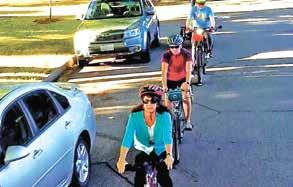
We’re too young, still, to have a textbook-style history — which requires distancing and debate and consensus building, besides a record of events — and yet too old to simply trust our memories alone. Our history is cobbled together right now with snippets from the newspaper, high school yearbooks, family memories, scrapbooks and anecdotes.
We’re in the realm of folklore, still passed mainly by word of mouth. And all the richer for it. If we are creatures of inertia, it is the inertia of motion as much as the inertia of rest. Even the
The Long View project pairs history with modern context. To celebrate Longview’s 100th
birthday, Columbia River Reader is expanding its monthly “People+Place” feature to contrast the historical “Then” with the contemporary “Now.”
“It’s important to look back and celebrate the past,” said publisher Susan Piper, “but equally important to track the changes that make us what we are today. How close are we to the founders’ vision? What remains? What’s entirely new?”
Thanks to tremendous community support (see Partner Spotlights, page 26), the Reader will present 12 months of “People+Place Then and Now” reportage, then combine and expand these features into a commemorative book. Empire of Trees: America’s Planned City
most settled of us venture out, whether it’s a trip to Safeway, or a second home in Palm Springs, a day at the beach or a long Sunday drive out to Willow Grove. There are currents running through us. Perhaps the most persistent is change and adaptability. The Planned City was relentlessly forced into Plan B. Or C, or D, or E. Events intervened. People responded. Meanwhile, the values side — the spirit behind the founders’ blueprints and topographic maps — supported people, held people up.
Longview’s incidents and accidents continue to fade in memory. Its grit, optimism, and resourcefulness seem still to be alive and well.
and the Last Frontier, written by Hal Calbom, with a foreword by John M. McClelland, III.
The Reader is coordinating with the Longview Centennial Committee, led by Reed Hadley, to publicize civic activities and celebrations (see Centennial Countdown, page 27) and will host a Book Launch Gala June 30, 2023.

1. Developing Dreams
2. Empire of Trees
3. Heavy Lifting
4. Work Force
5. Waste Not, Want Not
6. Telling Stories
7. Transport and Trade
8. Darkness and Light
9. Living and Learning
10. Community Spirit
11. Dreams Developing
12. Then and Now
WE’RE IN THE REALM OF FOLKFORE, STILL PASSED MAINLY BY WORD OF MOUTH
Photos:
Below: Contestants in the doll contest after Easter eggs had been distributed to the children of Longview by the Lions Club, Easter Sunday, April 1927.

Opposite page: Grainart panel circa 1926; printing press worker.
PhotoS

Thomas Jefferson set the bar high. Our Declaration of Independence argues our right to three things: life, liberty and the pursuit of happiness. Life and liberty, pretty straightforward. Survival. But we’ve spent a good part of more than 200 years trying to get the “pursuit of happiness” thing right.
Concluding this series celebrating the centennial of Longview, the planned city out here on the final frontier, it’s time to address that tricky question. We’ve survived, endured, succeeded and failed. But are we happy? And, if so or if not, what has this community had to do with it?
And today, a hundred years into our run here at the confluence of the Cowlitz and the Columbia Rivers, are we still pursuing happiness?
The founders called it a Planned City. But ultimately it’s been a Hoped For, Prayed For, Worked For City. And perhaps that vision on the hill, after all, wasn’t a dollar sign — it was a smile.
In many respects the Planned City’s 100 years parallel a long and well-lived human life:
1920s: Birth and precocious infancy and childhood
1930s and 1940s: Adolescence and coming of age through the Great Depression, world war
1950s thru 1990s: Prime of life, industriousness and accomplishment
2000s thru present: Late middle age, retirement and comfortable elder-hood
There’s another telling parallel with our human lives. In a famous paper, the American psychologist Abraham Maslow presented a “Theory of Human Motivation” later popularized as his “Hierarchy of Needs.” Maslow asked a couple of simple questions: What do people want, and why and when do they want it? Then, what steps must they take to get there?
cont page 21
Simplified, there are three levels in Maslow’s hierarchy, this quest for achieving full potential:
Survival: Basic needs — security and safety, food, water, and shelter
Psychological: Esteem needs — intimacies, friends, self-worth, accomplishment
Self-fulfillment: Actualization needs — creativity, achieving satisfaction, comfort, philanthrophy
So as a city — if indeed we’ve succeeded, or at least grown up — how did we progress from mere survival to self-fulfillment, as Maslow terms it? What got us there? And how did these two developing entities, the people and the place, feed each other? Coalesce? Succeed or fall short?
How did this human factor fit into the Planned City’s plan?
The Gospel of Work
The frontier perpetrated a whole host of Technicolor illusions in order to attract its pilgrims. The stark difference between what was promised and what was real revealed itself in dull shades of gray, in forlorn landscapes of mud and dust, rain and heat.
Even into mid-century: The thousands of job seekers lured to the central part of Washington State for an unspecified job in an unspecified place (they would be building the core of the atomic bomb, and none of them knew it) were tantalized with visions of green meadows and rainbow skies. Imagine, then, after a forty-hour train ride, stepping off into a wasteland called Pasco in 110-degree heat and inhaling a mouthful of grit.
What was not an illusion, and inevitably proved the frontier’s most powerful and authentic lure, was a job. The Hierarchy of Needs never explicitly mentions a job, per se But the benefits of gainful employment run its entire gamut, from survival to satisfaction — security, relationships, accomplishment, fulfillment.

Even before the Depression and its privations, Longview’s holy grail was gainful employment — transformative, life-defining. Mr. Long himself memorably said, It’s no use asking if I wanted to be a doctor or farmer or businessman because I had no set vocation in view. I just wanted to get ahead, that’s all, and to make every day count to that end.

The major driver bringing population to the frontier Pacific Northwest was simply getting ahead.
Today’s emphasis on “job satisfaction” puts too fine a point on it — the basic wants and needs of the job seekers who came west were driven by more humble visions of success and security. The Gospel of Work offered a cruel, binary distinction: you either had a job or you didn’t. That crash of the late 1920s and 1930s wasn’t just markets collapsing and factory doors slamming shut, it was the shattered hopes and dreams of those who’d come 2,000 miles simply for a paycheck.
Out of its collective misery emerged some of Longview’s best qualities. A certain adaptability and toughness allowed first citizens to extend help to each other, to
rally their resources, to collectively “suck it up.” The populace was many things, but one of them was not “spoiled.”
Most of the region had never really prospered during the 1920s, and thus residents typically had not indulged in the “two-cars-in-every-garage” kind of optimism common in more affluent states.

Carlos Schwantes
The Pacific Northwest
Many of the amenities and recreational outlets offered to the pioneers served not only their intended use — the diversion of fun and games — but also what we consider a more modern usefulness, relieving stress. Then as now, misery very often loves company.

Since 1936
Northwest hydropower produces no carbon emissions, thereby significantly reducing the total carbon footprint of the region’s energy production.
from page 21
Photos of the early years revel in civic celebrations and spectacles at every turn. May Day celebrations were huge events. The public gathered in droves for Easter Egg Hunts, patriotic commemorations, and the yearly Rolleo. Even as individuals were challenged, the collective spirit seemed strong. Rolleo!
Recreation was social. Sports, games and competitions were public spectacles — group galas — and none quite so spectacular as Rolleo, which seems to have been a local invention.
Longview formed its Rolleo Association in June 1929, and within three months the new sport drew national attention:

The log-rolling was won by Peter Hooper of Kelso, Wash. Clad in trunks and spiked shoes, he maintained his equipoise on a log furiously spinning in water for 14 min. 50 sec., when Sam Harris, his nearest competitor, splashed off. Champion Hooper received $150 and a belt stout enough to hold his bemuscled girth.
Ed Sorger of Longview, equipped with spikes and a circling rope, squirreled up a 120-ft. fir tree, cut out the top, descended, all in 4 min. 5 sec. Among his prizes was a Paul Bunyan doughnut, one foot in diameter.

TIME Magazine, August 29, 1929
Eventually Rolleo Weeks were splashing Paul Bunyanisms all over town, the whole city joining in the spirit including the founder himself in red hat and blue jeans — a rare photo of Mr. Long in less than his formal best. As it would for the rest of the century, Lake Sacajawea provided a focal point and gathering place for Rolleo and for many other events. The Red Cross held swim meets to help promote swim safety. Water carnivals packed in participants and spectators, many in canoes and rowboats plying back and forth.

A
Meanwhile, as still befits their tribe, golfers were determined to chase their little white pill no matter what manner of mire and muck might find it alighted. Impatient with the founding and funding of a modern country club, enterprising hackers (was the term ever used so
appropriately as in the brushy valley of the Cowlitz?) carved out nine holes between Pacific Way and Ocean Beach. John McClelland:
The course was short, rough, and an easy place to lose balls, but it was well-used, even after Weyerhaeuser built its railroad through the middle of it. Anyone who could clear the railroad track with his tee shot on the first hole had a good drive.

As for the larger ambition: A gang of on-site engineers and city builders could attest that golf courses are difficult and expensive to build. But Mr. Long gave his blessing in 1925 and the game was on. Money was to be raised by selling memberships in the fledgling Longview Country Club at $250 each. Pesky Kelso got in the game by declaring a course of its own in the works, trying to siphon off potential members as it had been poaching shoppers, diners and rental tenants already.
Luke Goodrich, president of the First National Bank, was elected club president and later owned up in a letter to S.M. Morris that, as was the case often in Longview, the club simply didn’t have the means or potential investment to do what older, more established cities had done:

cont page 23
Photos: Canoeists, Lake Sacajawea; Rolleo tree-topping; Longview’s first 9-hole golf course.
from page 22
Personally I have worked just as hard for the country club as I have for the bank in the past year and while I have never in my life welshed on a personal obligation it now appears that I am to be put in the position of facing the possibility of the country club, of which I am the president, being compelled to default on its obligation.
Sympathetic to the particular irony of a bank president facing bankruptcy, Mr. Long and the Longview Company bailed out the fledgling club.
Good Sports
The team sports flourished, requiring a less manicured piece of ground and a less mannered clientele. Even before the permanent buildings were completed in Longview, the Longview Athletic Field had been fenced off, with a grandstand, near Baltimore Street, down the road from the St. Helens Inns. A baseball club was organized — the Forest Rangers — and joined a semipro league which Kelso, of course, had scrambled to join with its own squad, the Timber Wolves. Players were recruited with modest salaries and, more important, good jobs.


R.A. Long High School played its games there until R.A. Long Field was finished in 1928. The Community House / YMCA offered basketball, swimming and fitness facilities, along with a venue for entertainment and socializing.



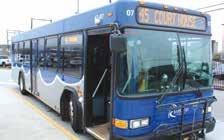
There were more sedate forms of collective activity. Service clubs of all sorts blossomed in the new city, although many imposed population requirements, charter fees, and other qualifying actions. Lions, Elks, Kiwanis and Rotary all scrambled to establish chapters, but may have been outdone by the Longview Women’s Club, which not only declared itself but also built its own building near Kessler Boulevard, Depression and all.

Vandercook, Morris, and several others formed the Columbia Amusement Company and in late 1924 opened the Columbia Theater, built to host live drama and entertainment, as well as motion pictures. Road shows came to Longview regularly and five acts of vaudeville were standard weekend fare. However, as was often the case, Kelso had stolen a march on Longview in the entertainment game as well, with three established movie houses — the Vogue, the Liberty and the Auditorium.
cont page 24
J.H. Kelly, a plumbing contractor, organized a soccer club, to the astonishment of the Long-Bell brass who’d barely seen or heard of the game. Playing its games at the local field and recruiting players with Canadian or British / Irish lineage, the Longview Timber Barons won the Oregon state title five years running and the Washington title once.
from page 23
As John McClelland notes, “Longview was a city of joiners from the very beginning.” Moose, Eagles, Masons and Odd Fellows were established. Its American Legion Post, with 50 members, was formed in 1924. Wherever Longview recreated or socialized, it tended to do so in a crowd.”

Outdoor Paradise
Those who could afford some time off, time to lift their heads from the wheel of toil and look around, soon realized that Longview was an outdoor paradise. Hunters and fishermen delighted in the wild surround, thrilled especially by the variety of rivers and natural reserves. There were vast prairies to the north, ridge crests and stream beds flowing south. The six rivers of Cowlitz County — Kalama, Lewis and Toutle, Columbia, Cowlitz, Coweeman, — abounded with fish suitable for both sport and commercial anglers.
The Kalama River was famous for fly-fishing, especially for summer steelhead. Small boys growing up on the river first learned to swim and then to fish, gaining such an intimacy with the fish that they knew their hiding places. Fishermen unfamiliar with the river would pay local boys a dollar to point out where the fish were and always caught them.

Virginia Urrutia
They Came to Six Rivers
Then came the cars. The advent of automobiles and the building of roads did more than connect people and provide basic transportation. Automobile touring — and eventually adventures by bus, train or sternwheeler — became a popular recreational getaway. Few guests ever came to Longview without ritual visits to the Columbia Gorge, Mount. St. Helens, the Pacific beaches, and Bonneville Dam. Still, most of them put visiting the world’s largest sawmill at the very top of their lists.
Across the years the town has experienced economic bumps and neardisastrous unemployment at times. Development has been haphazard, almost in defiance of the Planned City ethos, as shopping malls and centers have spread throughout the region and sucked the life from downtown. The city has experienced social disruption, and is not immune to crime, addiction and poverty.
Still, for Longview a vision of the good life has endured. More than most towns. As John McClelland, Jr. and other historians have pointed out, Longview was bequeathed optimism, hopefulness and high expectations. It’s been more than lucky to count R.A. Long as its benefactor and developer. It’s inherited a strain of that good man’s idealism and vision, too.
Even if the founders experienced bumps in the road, disruptions shoving the city the other way, they dreamed big. And dreamed good. Until Longview gives every man, woman and child within its limits an opportunity to live happily, to improve mind, soul and body…Longview has an unfinished task.
R.A. Long, 1925
It’s difficult to say where the city stands relative to a hierarchy of needs. Perhaps no one has, or ever will, reach complete self-fulfillment. But futures are built as much on hope as in history, and Longview has always relied on that in generous supply.
The superlatives for sale extended well beyond the town’s city limits. Longview was always a regional destination, interdependent marketing-wise with neighboring pioneers and pitchmen. The county, the region, the state all added their voices to Longview’s siren song:
This was clearly to be a model city, not a typical milltown, that Long hoped would attract a high-quality, family-minded class of worker. With a vision similar to that of the city planners, Oregon engineer Samuel D. Lancaster designed the new Columbia River Highway, a route that was to be beautiful as well as functional. When Oregon opened the first section to traffic in 1915, the highway’s spectacular engineering and aesthetic appeal attracted world attention. The first major paved highway in the Pacific Northwest also made automobile travel possible from Portland through the Columbia Gorge to eastern Oregon.
Carlos Schwantes
The Pacific Northwest
The development of transportation — such a challenge for the founders and early pioneers, especially given the forbidding rivers and demanding topography — would unlock much of Longview’s productivity and enhance its quality of life.
The Good Life
Longview’s story didn’t unfold with the precision and order assumed by the founders. Events changed that. The people who came to Longview didn’t fit their vision, either: neither the two thousand black mill workers nor the instant middle class eager and able to buy lots and build houses. Products of the times themselves, Longview’s people were hard-pressed, reeling, and poor. Economically the town achieved its initial goals only to have the markets slide from under it. The Depression and the war, which wreaked havoc on the region and the country at large, held a silver lining for Longview, with its industry, cheap energy, and deep water port. But a town and region so heavily reliant on extraction industries always faced a finite future. Nobody knew better than the Kansas City founders — who’d harvested almost entirely the timber resources of the south — that even the magnificent miles of cedar and fir would one day be exhausted. Longview would become the unlikely champion of recycling, product derivation, and forest management, almost despite itself. It could be argued that years before the term even fell into use, the residents of southwest Washington were environmentalists. Out of necessity.
Longview exists thanks to R.A. Long’s good faith and strength of character, not just his money. Its future is well served with those ideals intact, alive and flourishing.


Longview today remains a city of contradictions and compromises. Much of the last century has been transmitted to us by voice and recollection, recorded in stories not in stone. Research and interviews uncover diverse tales and divergent opinions. Longview doesn’t seem to agree unanimously on much of anything, except voicing a familiar comment that “people here don’t much like being told what to do.”
Its politics have changed dramatically in the last 50 years. A city full of churches is struggling with dwindling congregations. Idyllic Lake Sacajawea reposes mere miles from screaming neon signs and fast food joints run riot. A town built by loggers and sawyers now teems with accountants, occupational therapists, clerks and engineers.
In short, Longview is alive and well, but elusive, hard to pin down. For all its memorials, snapshots, commemorations and dedications, Longview remains reluctant to stand still for its portrait. It’s a town built on energy, enthusiasm, salesmanship and sweat — a motion picture, not a still life.
This place still tries to be good and to do good. But it’s a changed world with fewer certainties, greater risks, and relentless, disruptive change.
The only constant is change. That’s a cliche, of course. But it permeates this tale of two cities, Longview Then and Longview Now. Change and challenge have been as much a part of the Longview landscape as the Cowlitz and the Columbia.
Consider Avery, Chansol, Aayilah and Isabella — members of the Class of 2023, Longview’s centennial year high school graduates. This June they celebrate a huge milestone and uphold a proud tradition, relying on their ability to adapt, flex, and change.

This is the COVID-19 Class. The children of the pandemic. For three years, their entire high school experience, the best years of their lives, have been a fight for their lives. And an assault on their spirits: classes disrupted; games and sports seasons canceled; social life curtailed; stress at home, work, and school. All with a drumbeat of global catastrophe thrumming in their ears and masks covering their faces.
And yet…
“I actually feel really optimistic,” said Avery Moon, of R.A. Long High School. “We have so many different resources to get things done, to adapt.” Zoom meetings and phones and social media are positive, powerful tools for the Class of ’23, not the bane they can be to their elders. “Yeah, we all went virtual, but our teachers did a great job keeping it real for us, too.”
Moon feels gratitude to the faculty — R.A. Long’s graduation rate has gone up dramatically in the last five years — and intends to major in elementary education herself. She’s enjoying freedom from mask requirements and celebrating her historic school in her final days. “They’ve done a great job keeping all the history that’s here, but keeping it modern, too.”
cont page 26
To donate, please mail your check payable to: Mark Morris High School Foundation, P.O. Box 1674, Longview, WA 98632 Or donate online at mmhsfoundation.org
The Mark Morris Foundation was created in 2008 in honor of the 50th anniversary of the school. An independent, nonprofit organization, it welcomes tax-deductible donations for the benefit of Mark Morris students for scholarship programs and projects at the school.


Proud Sponsor of People+Place

“I’m from Seoul, South Korea, so Longview is a big change for me,” said Chansol Park, of Three Rivers Christian School. “I love Longview. I tell my relatives in Korea it’s an hour from the mountain, an hour from the beach, an hour away from any adventure.”


“I love the smaller city, the way everybody knows each other,” he said. And he’s especially happy with the way classmates and friends regard his disability. Chansol has cerebral palsy, but now walks with a single crutch after beginning the school year in a wheelchair. “They don’t see me different or treat me different. This was something I faced in South Korea.”
His goal is to attend a Christian College and come back to teach at his alma mater. “My faith will be a big part of how I choose a college, I want a chance to share it and talk about it.”
Aaliyah Zimmerman knows very well what she doesn’t want to do after high school. “I just can’t see doing anything behind a desk all day. I’m much more a hands-on person.” The senior at Longview’s Discovery High School has made up missing credits thanks to flexible scheduling and Running Start classes. “I like the fact that this is a small school, a small group of people. And everybody has a pretty good idea what they want to do.”
Aalilyah is exploring a career in the trades, and is impressed with the offerings and career pathways at LCC and other community colleges. “Maybe an auto-mechanic? Just so long as I’m up and moving around! No desk jobs.”
“I’ve really got my heart set on Northwestern, but I’ve been offered some other good scholarships, too.” Such are the difficult choices for Isabella Merzoian , of Mark Morris High School. “I loveconnecting with people,” she said. What she’ll remember best about her high school days is “how close this community is around their kids. There is total support. I never want to regret not doing something I had a chance to do.”
Other college application results await Isabella, who continues to think the sky’s the limit. Asked what her ultimate career plan might be, she doesn’t hesitate. “I’d like to go into medicine. I want to be a surgeon. And I want to come back here to the Pacific Northwest.”

According to local architect Craig Collins, “Longview is unique in that so many of its historic buildings were built at the same time,” which gives it a particular character even among cities of the same vintage. “Three of our most architecturally prominent buildings, the hotel, the library and the R.A. Long High School, were each built near the same time, in the same Georgian Revival style.” Collins is surrounded in his Longview office by brilliant photos of projects completed over the last four decades in the region, including major government buildings and extensive improvements at Lower Columbia College.
For a relatively small “industrial” town, Longview has an unusual number of buildings and spaces located on both the National Register of Historic Places and the Washington Historic Register. The three most familiar are probably the Civic Center and its surrounding buildings, the Monticello Convention Commemoration site, and the entirety of Lake Sacajawea Park. The notable Historic Structure is the Columbia River Longview Bridge, renamed the Lewis and Clark Bridge in 1980. Collins’s favorite more contemporary structure is, despite “The 70s not being a great decade for civic architecture,” Longview City Hall, which he predicts will remain timeless and well regarded.
Since Forbes Magazine a few years ago included Longview among America’s 10 prettiest cities, it seems the city has held its own quite well, dubbed as early as 1956 by writer Stewart Holbrook,
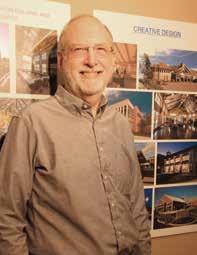

…as attractive a city as can be found along the Columbia; and there are many nonresidents who consider Longview to be the most beautiful town in either Oregon or Washington.”

 Stewart Holbrook
Stewart Holbrook
The Columbia, 1956
Opposite page: Longview’s citizens have always aspired to the good life. Shots from Longview’s 2023 Arbor Day planting with support of local Rotarians, LCC’s fitness center, Mint Valley Golf Course, the Old West Side neighborhood, and Lake Sacajawea.
THEY’VE DONE A GREAT JOB KEEPING ALL THE HISTORY THAT’S HERE, BUT KEEPING IT MODERN TOOTop photo: Architect Craig Collins in his Longview office. He is the designer and re-designer of many local buildings, including several at Lower Columbia College. Chansol Park Aaliyah Zimmerman Isabella Merzoian
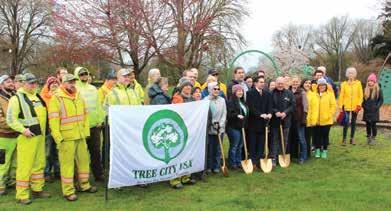
Longview’s charms are many. The main streets are wide, many of them graced with huge trees now fully mature and leafy. Street surfaces are grooved with diamond shaped lines, which actually are the expansion and contraction joints for the concrete, but double as decoration.
 Ruth Kirk and Carmela Alexander
Ruth Kirk and Carmela Alexander


If Longview can lay claim to physical beauty and aesthetic charm, its epicenter is surely the extraordinary Lake Sacajawea. Were the founders transported forward from their own century, it seems likely the lake might be the feature deemed most the same and most highly evolved — what they’d built and what they’d imagined, all in one.
From its very beginnings the town seems to have had a special feeling about this undistinguished piece of low water known then as Fowler’s Slough. Maybe because it seemed to have no immediate commercial value — located more in the center of things than on the periphery — it might serve a higher purpose, as an ornament, perhaps, a centerpiece at the
Firework and military versions of early rockets have existed for millennia, but we have moved from the Wright Brothers’ first flight in 1903 to the moon landing of 1969 very quickly! Today with SpaceX dramatically bringing the cost down with reusable, re-landing rockets, we’ll soon witness the next revolution of human exploration and innovation.
In the past month, SpaceX Starship finally conducted its first orbital test and while the results were mixed, Elon Musk said that anything clearing the launch pad would be a success and the follow-up version already has 1,000 changes, combined with all they learned from that day.

Musk expects several more test flights before 2024 and cargo
Proud
town’s busy table. Unfortunately for the historic Fowler family, the townsmen were certain they’d never lose “Slough” unless they changed the entire name. The Daily News responded with a contest and the young Shoshone interpreter who’d accompanied Lewis and Clark — Sacajawea — became the namesake.
Drive Kessler Boulevard between Washington Way and Ocean Beach Highway — and adjacent streets — for a windshield tour of homes that are stately although not opulent. Combined with adjacent churches and the beauty of the park, the neighborhoods’ effect seems to achieve Long’s belief in the orderliness of life.
Kirk and Alexander
or even manned missions to Mars to create a 1,000,000-person, self-sustaining colony, to begin within the decade, and an 8-person civilian moon flyby within five years. The colony will take decades to complete, using 1,000 starship rockets carrying 100 people each, every two years when the orbits of Earth and Mars are closest.
Starship will be able to increase the rollout of their global internet service, Starlink, by almost 7X, with greater satellite payload vs the current Falcon 9 rocket.
Hal Calbom is a third generation Longview native and R.A.Long High School graduate. He works in public affairs television and educational publishing. This month he begins his sixth year photographing and writing Columbia River Reader’s People+Place feature. Co-founder of Columbia River Reader Press, he may be reached at hal@halcalbom.com.
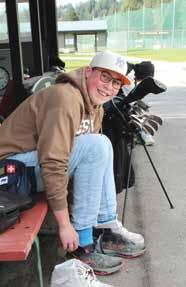

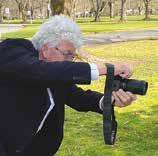
Wilbur and Winston love to explore a revitalized Downtown Longview. Beautiful sculptures on Commerce Avenue, wonderful restaurants, breweries, wineries, cute boutiques; even an artisan chocolate shop. Although chocolate is off-limits, Wilbur and Winston love visiting Pet Works!

Vince and Susi; Tom and Joanna
ITS EPICENTER IS SURELY THE EXTRAORDINARY LAKE SACAJAWEA
The Long View Project would be impossible without the financial and creative support of our sponsor partners. During the coming year the Reader will feature brief profiles of these partners — highlighting their relationship to Longview and interest in its history.
While I’ve finally moved to Europe full time here in Lisbon, Portugal, and by 2030 Switzerland, my long-time dream, I’ll always say I’m from Longview in Washington State.
Growing up in Longview was filled with happy memories and a safe environment. The late Bert Jepson was my godfather at St. Stephen’s Episcopal Church and I was best friends with his son Jake into my high school years.
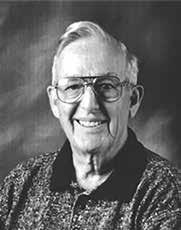
We used to race carts down Bert’s steep driveway in the Kelso hills with Jake and his brother, Bert Jr., who first introduced me to “Sonic the Hedgehog” on the Sega Genesis, sparking a lifetime of following the latest tech and gaming trends.
I attended St. Rose School with a class of about 25, followed by Mark Morris High School and then a mix of Pacific Lutheran University in Tacoma, and Lower Columbia College in Longview. I got an Associate’s Degree in Arts and then worked as a graphic designer, IT manager, and off and on as “paper delivery boy” for CRR until 2021, when I left to focus completely on finance.
I’m very excited to watch the Longview Centennial celebration this Summer and Fall. A drone light show is impressive and
cont page 32

One name that’s stayed prominent throughout Longview’s hundred years is that of J.H. Kelly.

“My grandfather got itchy feet,” said Jackie Evans from her home overlooking Lake Sacajawea, “and being a plumber by trade, he came west looking for business.” In 1923 the Irishman saw a road sign for the Planned City and figured it just might be that business opportunity.
of physicians a big part of Longview’s past and present
In 1949, Dr. Neal and Ethel Kirkpatrick moved with their sons Richard and John, to Longview after a brief job in Lincoln, Nebraska fell through. Neal was Cowlitz County’s first Internal Medicine specialist. Four years later, while Neal was serving in the U.S. Air Force in Alaska, Dr. Wendell and Mickey moved to Longview from Baltimore, to take over and expand the Kirkpatrick Clinic. After initially seeing patients in the top floor of the General Mortgage Building (14th and Broadway), they built an innovative office building on the Civic Center, which featured on-site lab, x-ray, and minor surgery, plus weekend hours.
Neal was very active in bringing modern cardiology care to Longview, setting up Southwest Washington’s

first Coronary Care Unit and the first allbeds-monitored heart hospital ward. As Director of Medical Education at St. John’s for 30 years he scheduled various experts from Seattle and Portland to share their insights with the medical staff “Tuesday Roundtable” luncheons. He also published
cont page 32
The Kellys had migrated to Canada from Ireland and like many emigrants, followed the timberline west, ending up in Prince Rupert, B.C. and then drifting south. “They were just building the St. Helens addition, and everybody needed plumbing,’ Evans said. Among the founder’s five kids was another John Henry Kelly, Jackie’s dad. “He was a scholar in overalls,” Evans recalled, “and continued to build the business.”
Jackie was born in Kelso, and lived her first 10 years there, then entered a nursing program at the University of Washington in the early 1960s, where she met her future husband, Dan. “The school was bigger than Longview, and the nursing program was tough — 800 people entered it and only 80 graduated.” Dan and Jackie lived in California for a time, then returned to Longview, where Dan bought into the Kelly business in the 1970s. “I was a young mother with a couple of kids and the people were incredibly friendly here,” she said. ‘I think this town is a well-kept secret. It’s a great size, with great community spirit.”

J.H. Kelly and his family have left a powerful legacy in Longview, (and a love of soccer brought with the family from Ireland and introduced here in the 1920s). The Irishman with itchy feet would be proud to know his company has grown beyond the region and is nationally known for industrial construction, mechanical engineering and services.
“I like Longview,” said Evans, “and this is our opportunity to celebrate it.”
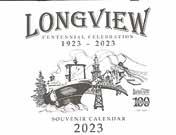
2023
Monthly The Long View* CRR’s “People+Place Then and Now”
Special Centennial Feature Series (thru June)
June 24 Centennial Car Show • 9–3 • ENTRIES NEEDED!
Vintage 1920s-30s-40-50s
Reg. fee $25 sign up at longview100.org
June 25 Trinity Lutheran Church Open House 1–4pm
10:30am Worship Service, followed by 1920s-themed Picnic RSVP
June 30 CRR’s “From Page to Stage”
Book Launch & Gala Variety Show
Pre-order books and Gala tickets now (see page 2) 7pm, Rose Center, Lower Columbia College
Sept 8-9 Centennial Celebration:
Banquet- Monticello Hotel, Drone Light Shows, Parade, Street Dances & MORE
The Longview Public Library’s Podcast Your Shelf or Mine is celebrating Longview’s Centennial with historical episodes, including
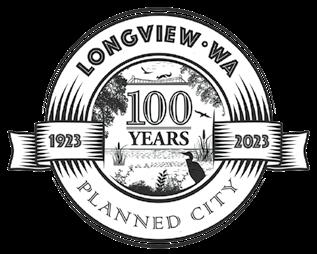


• Longview’s ‘23 Club, with Cal Fowler and Abe Ott
• Empire of Trees: America’s Planned City and the Last Frontier, with Hal Calbom and Sue Piper
• Joseph Govednik, Cowlitz County Historical Museum, World War II
To listen, visit longview100. org, click on “Events” and then the Your Shelf or Mine icon (shown here).
June 3 Healthy Kids Day, Saturday1–3pm Free event with lots of fun and activities for families.
Sept 30 YMCA Ice Cream Social and Ol’ Time Music, 2–5 pm Ice cream treats, music, dancing. $5 Adults, $3 kids.
Nov 11 First Ever YMCA Military Ball, Saturday 6–10pm Black tie or dress uniform event with dinner and dancing for all active military personnel, veterans and their spouses or dates. AWPPW Hall adjacent to the YMCA. Child care, silent auction, other activities at the YMCA.
Info 360-423-4770 • longviewymca.org
Contact: Reed Hadley, longviewcentury@gmail.com or Arleen Hubble, ahubble61@gmail.com
U.S. MAIL: P.O. Box 1035, Longview, WA 98632
• CENTENNIAL CAR SHOW
JUNE 24. INFO/REGISTRATION ON WEBSITE
• ARE YOU CREATIVE? Help design storyboard for 300-DRONE CENTENNIAL LIGHT SHOW, DETAILS ON WEBSITE
• INFO & EVENTS
Souvenir Centennial Calendars, artist illus., $5 Official Centennial Coins $10, lapel pins $3 (2 for $5); T-shirts $15-18, Pens $1, Stainless steel drink tumblers, etc. Now available at Kelso Longview Chamber Visitor Center next to I-5 in Kelso, and Longview YMCA.

Calendars also available at Paperbacks Galore and Cowlitz County Historical Museum
“1923:
Changed
County” see preview, pg. 4
SCHEDULED TO OPEN
MAY 19
Museum Hours T-Sat, 10–4
VISIT WWW.COWLITZCOUNTYHISTORY.ORG for updated info
Longview Country Club invites public to help celebrate Club’s Centennial - see page 38.
Fri-Sat-Sun
July 28th-30th
Loggers Breakfast, Quilt Show, Sculptor Wade Lapp, Parade, Boat Races, Live Music by Bruce Maier Band. Details, www.ryderwood.org

The Year that
Cowlitz
Fultano’s Pizza
770 E. Columbia River Hwy
Family style with unique pizza offerings, hot grill items & more!
Dine-in,Take-out and Home Delivery. Visit Fultanos.com for streamlined menu. 503-728-2922




The Corner Cafe
796 Commerce Ave.
Breakfast & Lunch. Daily Soup & Sandwich, breakfast specials. Tues-Sat 7am-3pm. Closed Sun-Mon. 360-353-5420.
Email: sndcoffeeshop@comcast.net
Eclipse Coffee & Tea

Fultano’s Pizza
Ixtapa Fine Mexican Restaurant
640 E. Columbia River Hwy
Fine Mexican cuisine. Daily specials.
The best margarita in town. Daily drink specials. Dine-in, curbside pickup. M-Th 11am–9:30pm; Fri & Sat 11am–11:30pm; Sun 11am–9pm. 503-728-3344
102 East “A” Street
Microbrews, wines & spirits


7am–8pm Daily. Inside dining.
Interstate Tavern

119 E. “B” St., (Hwy 30)
Crab Louie/Crab cocktails, crab-stuffed avocados. 17 hot and cold sandwiches. Amazing crab sandwiches. Full bar service. Catering for groups.
503-556-5023. interstatetavern@yahoo.com
503-556-5023
El Tapatio
117 W. ‘A’ Street Mexican Family Restaurant. Open Fri-Sat 11am-11pm, rest of week 11am-10pm. Full bar. Karaoke Fri-Sat 8-11pm. Patio seating. 503556-8323.
1335 14th Avenue
18 rotating craft brews, pub fare.
M-Th 11am–8pm. Fri-Sat 11am–10pm; Sunday 11am–6pm. Local music coming soon. 360-232-8283. Inside dining

See ad, page 10. Follow us on Untappd.
1133 Broadway.New lunch spot opening
June 1. Open Mon-Sat, 11–4.
360-998-2936 See ad, poage 7
Bruno’s Pizza 1108 Washington Way. Pizza, breadsticks, wings, salads, fish & chips. WE DELIVER. Four beers on tap. 360-636-4970 or 360-425-5220,
Restaurant & Lounge
The Carriage Restaurant & Lounge
1334 12th Ave. Open 8am–9pm (sometimes later, call to check). Breakfast, lunch and dinner. Full bar, banquet room available for groups, special events. Happy hours daily 9–11am, 5–7pm. 360-425-8545.
In the Merk (1339 Commerce Ave., #113) 360-998-2139. Mon-Fri 8am–4pm. Specialty coffees, teas, bubble teas and pastries....drinks with a smile. Takeout and on-site.
Freddy’s Just for the Halibut
1110 Commerce Ave. Cod, Alaskan halibut fish and chips, award-winning clam chowder. Burgers, steaks, pasta. Beer and wine. M-Sat 10am–8pm, Sunday 11am–8pm. Inside dining, Drive-thru, outdoor seating. 360-414-3288. See ad, page 34.
The Gifted Kitchen

711 Vandercook Way, Longview
“Celebrate, create, inspire.” Soups, salads, sandwiches, wraps, entrees, sides, pot pies, quiche, grazing boxes & more. M-F 11–6; Sat special events only; Sun closed. 360-261-7697.
Hop N Grape

924 15th Ave., Longview
Tues–Thurs 11am–7pm; Fri & Sat 11am–8pm. BBQ meat slow-cooked on site. Pulled pork, chicken, brisket, ribs, turkey, salmon. Worldfamous mac & cheese. 360-577-1541.
Kyoto Sushi Steakhouse

760 Ocean Beach Hwy, Suite J 360-425-9696.
Japanese food, i.e. hibachi, Bento boxes, Teppanyaki; Sushi (half-price Wednesdays); Kids Meal 50% Off Sundays. Mon-Th 11-2:30, 4:30-9:30. Fri-Sat 11am10pm. Sun 11am-9pm.
Lynn’s Deli & Catering
1133 14th Ave.
Soups & sandwiches, specializing in paninis, box lunches, deli sandwiches and party platters. Mon-Fri 8-3, Saturday 10-2. 360-577-5656
Roland Wines 1106 Florida St., Longview. Authentic Italian wood-fired pizza, wine, and beer. Casual ambience. 5–9pm Wed-Fri, Sat. 1–9. 360-8467304. See ad, page 12.


Scythe Brewing Company 1217 3rd Avenue #150

360-353-3851



Sun, Tue,Wed, Th 12noon -8pm; Fri-Sat 12noon -10pm Closed Mondays
Family-friendly brewery/restaurant with upscale, casual dining, lunch and dinner.
Stuffy’s 804 Ocean Beach Hwy
360-423-6356
8am–8pm. Breakfast, lunch, dinner. American style food. Free giant cinnamon roll with meal purchase on your birthday with proof of ID.
Facebook: Stuffy’s II Restaurant, or Instagram @ stuffys2.

Teri’s, 3225 Ocean Beach Hwy, Longview. Lunch and dinner. Burgers, steak, seafood, pasta, specials, fresh NW cuisine. Full bar. Tues–Fri, 1–8pm. Sat 3–8pm.. Closed Sun-Mon. Curbside pickup. Inside dining. 360-577-0717.

Luckman’s Coffee Company
239 Huntington Ave. North, Drive-thru. Pastries, sandwiches, salads, quiche. See ad, page 33.
Parker’s Steak House & Brewery
1300 Mt. St. Helens Way. I-5
Exit 49.
Lunch, Dinner. Burgers, hand-cut steak; seafood and pasta. Restaurant open 1-8pm Tue-Th, 1-9pm, F-Sat. Lounge Happy Hours 4pm. 360-967-2333. Call for status/options.
Vault Books & Brew 20 Cowlitz Street West, Castle Rock. Coffee and specialty drinks, quick eats & sweet treats. See ad, page 36
215 N. Hendrickson Dr., Port of Kalama. A Northwest pub and unique bars serving breakfast, lunch & dinner daily. Info & reservations, bar hours at mcmenamins.com. 8am–midnight daily. 360- 673-9210. Indoor dining, covered outdoor seating, curbside take-out.
Sunshine Pizza & Catering
2124 Columbia Blvd. Hot pizza, cool salad bar. Beer & wine. Limited inside seating, curbside pickup and delivery. 503-397-3211 See ad, page 16.
Big River Tap Room
313 Strand Street on the Riverfront. Lunch/Dinner Tue-Thurs 12–8pm; Fri-Sat 12–9pm. Chicago-style hot dogs, Italian beef, pastrami. Weekend Burrito Breakfast, Sat 8-11, Sun 8am3pm.
Plymouth Pub 298 S. 1st Street, St. Helens, Ore. Family friendly, food, 14 tap handles. Open daily 11am-10pm.


51511 SE 2nd. Family style with unique pizza offerings, hot grill items & more! “Best pizza around!” Sun–Th 11am–9pm; Fri-Sat 11am–10pm. Full bar service ‘til 10pm Fri & Sat. Deliveries in Scappoose. 503-543-5100. Inside Dining.
Ixtapa Fine Mexican Restaurant
33452 Havlik Rd. Fine Mexican cuisine. Daily specials. The best margarita in town. Daily drink specials. M-Th 11am–9:30pm; Fri & Sat 11am–11:30pm; Sun 11am–9pm. 503-543-3017


Warren Country Inn

56575 Columbia River Hwy. Fine family dining. Breakfast, lunch & dinner. Full bar. Call for hours.503-410-5479. Check Facebook for updates. Dine-in.
DREW’S GROCERY & SERVICE
5304 Spirit Lake Hwy (10 mi. fr Exit 49) 24-hour fueling (gas & diesel, card at pump, cash at Jule’s Snack Shack (when open). Red Leaf Organic Coffee. See ad, page 16.
1350 Atlantic Ave. Rotating craft brews, pub fare. Open M-Th 11am–6pm; Fri–Sat 11am–10pm; Sunday 11am–6pm. 360-841-8941. See ad, page 10.
Luckman Coffee Company


1230 Lewis River Rd. Small batch on-site roasted coffee, breakfast, lunch. Inside seating. M-F 5:30am–6pm, Sat 6am–5pm, Sun 7am–3pm. See ad, page 33.


THE OAK TREE
1020 Atlantic Ave. Breakfast served all day. Famous Bankruptcy Stew, Oak Tree Salad, desserts baked in-house. Full bar. Happy Hours 1-3, 7-9pm. Live music. 360--841-5292. See ad, page 16.

Vince and Karen Penta enjoy an afternoon in Victoria, B.C., with Victoria Harbour and Parliament Buildings in the background

He rowed ashore Tyler Tronnes was home on leave recently before reporting to his new duty station on the East Coast. He joined the US Navy shortly after graduation from R.A. Long High School (Class of 2021). His father, Steve Tronnes, and Emme had saved copies of the Reader for him.

Tyler has been busy and hopefully can catch up soon with his reading of the mere 17 back issues. He’s pictured here with a copy of CRR’s Holiday 2021 issue at Grocery Outlet in Longview. Note their message on the sign.

We appreciate your service, Tyler!
Rainier residents Gary and Jackie Schiedler sightseeing at Aberdeen Harbour, Hong Kong, on a trip to visit their son Adam Schiedler, daughter-in-law Chloe Schiedler and their grandchildren, Lucas and Maya Schiedler, in April.

Send your photo reading the Reader to Publisher@CRReader.com. Include names and cities of residence. We strive to promptly acknowledge photos received; if you don’t hear from us within 5 days, please re-send. For cell phone photo, choose the largest file size up to 2 MB. Photo tip: Please pose people near the camera; the background scene will still show in the frame behind.

weekly newsletters to share with hospital, nursing home, and outpatient clinics, highlights from the 40 medical journals he read every month.
Meanwhile, Wendell was a fixture in the local Boy Scouts, taking young kids to regional and national scouting events. He also was president of the Longview School Board and Team Physician for R.A. Long athletics.
Both brothers — professional musicians since their teenage years in Madison, Wisconsin — were active in the musical community. Neal managed and conducted the Longview Community Church Temple Singers and Orchestra in more than 100 concerts of Handel’s “Messiah” and another 50 oratorios and patriotic concerts. Meanwhile, violinist Wendell recruited and organized musicians to fill out the 30-piece orchestra. Both were involved in creating the Southwest Washington Symphony in 1966, and continued playing flute and violin for many decades. Wendell’s five children all graduated from R.A. Long High School, and four of them went into
medical careers (the “black sheep” became a decorated FBI agent and instructor). Neal’s two sons became doctors and two daughters, teachers. All were Mark Morris High School graduates.
In 1976, Dr. Richard Kirkpatrick returned from the Mayo Clinic to join in, before creating the Internal Medicine Clinic of Longview in 1977. In 1996, Richard rejoined Neal and Wendell, and the practice became Kirkpatrick Family Care (“KFC”), with an additional clinic at the corner of Commerce and Douglas, adjacent to the Lower Columbia Women’s Clinic.


The “KFC” has been open every day since January 1, 1996, and offers dozens of ancillary services provided by a staff of more than 60. Continuing with Neal and Wendell’s commitment to medical education, KFC has mentored nearly 100 students in Medical, Osteopathic, Physicians Assistant, and Nurse Practitioner schools. Also carrying on their legacy, Dr. Richard and Dr. Wendell’s sons, Drs. Steve and Donald, have sponsored many youth sports and musical events, and Richard has been Team Doctor for Mark Morris High School and LCC since 1976. We hope Drs. Scotty and Christie return home to join the staff at Kirkpatrick Family Care in June 2024.
very forward-looking. I’ve never seen one in person, but Tesla did one recently and it looked incredible online! It’s fun looking back on the town’s history at The Merk building and also a family photo of my great-grandfather (Rev. E.H.Gebert) standing next to R A Long at the Community Church. Having an interest in seasteading, perhaps I’ll repeat the history of Mr. Long and start my own town, as well, on the ocean, someday within my lifetime.
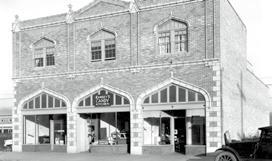
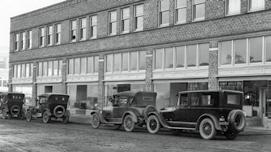
Alongside my CRR responsibilities, I fixed computers as my own part time business. It was always a pleasure helping Longview residents and retirees figure out their electronics. While many of my best clients have passed on, I’m glad I could help removing some of their stress in their final years.

My greatest memories of Longview include my first year in high school, meeting so many new friends in band class marching down Main Street in Disneyland, on the year’s trip. Or the various nature outings of the region, from Beacon Rock, Mount St. Helens, or Multnomah Falls to Astoria. I also loved playing in the Symphony on French horn, as well as guitar, drums and vocals with friends in our own garage band, “The Gentlemen of Envy.” We played a few live shows, the biggest of which we opened for “Broadway Calls!”

I’ll never forget Longview and I salute everyone for the next 100 years of prosperity. I’ll visit again down the road and will be happy to give anyone from back home the Lisbon walking tour — something I think I’ve perfected.
Editor’s note: Take sturdy walking shoes, there are a lot of cobblestones!
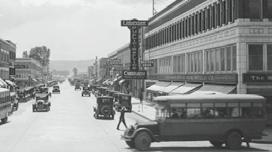
Everyone’s
The Evening Sky (a clear open low western horizon is needed) Mars and Venus are still with us in the evening sky. Mars is hanging out near the star Pollux in Gemini while Venus is low in the ‘waist’ of Gemini on May 15th. By May 22nd – 24th, Mars is still up by Pollux, but Venus has moved up between the lines of stars that make up the bodies of the twins.
The Morning Sky (cloudless eastern horizon sky required) Jupiter is the bright star in the eastern morning and if you are lucky, you may see the planet Mercury as a pinpoint of light nearer the horizon 30 minutes before the sun rises at the end of May. Saturn is also up early in the predawn (4:50 a.m.) sky about 15º high in the southeast just as Jupiter is rising in the east.
Night Sky Spectacle (A cloudfree evening is a must)
Spring is when the skies start to abound with star clusters both open and globular. Open up your favorite sky chart app on your phone and point to the sky. Point to the east and northeast, see them pop up on your screen, then use your binoculars to try and find them. These star clusters will be with us all summer; start to
June/July/Aug
Tai Chi for Beginners
Tues and Thurs – 10 AM


Tai Chi/Qigong Flow
Mon – 6:15 PM Beginner
Register through

Longview Parks & Rec 360 442-5400 Instructor
LaNay
Tai Chi for Health and Senior Fitness Instructor
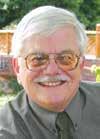
TCHI Certified Tai Chi for Arthritis and Fall Prevention (Standing/Seated)



Tai Chi & Qigong for Health and Wellness (Standing/Seated)
The Administration on Aging (AoA) has rated the TCHI Tai Chi for Arthritis and Fall Prevent (TCA) program as the highest evidence-based program for older adults and wellness. More information at www. taichiforhealthinstitute.org.
By Greg SmithMoon Phases:
New: Fri, May 19th

1st Quarter: Sat., May 27th
Full: Sat., June 3
3rd Quarter: Sat., June 10
End of twilight - when the stars start to come out:
Fri., May 9th, 9:17pm
Wed., May 31st, 9:31pm
Fri., June 9th, 9:39pm
Sat., June 17th, 9:44pm
All times are Daylight Savings Time
learn where they are and get a feel for the night sky. The globular clusters are in the range of 20,000 light years to 35,000 light years away. The light left these stars when sabretooth lions were attacking mammoths at the Los Angeles La Brea Tar pits. M57 (the Ring Nebula, the remains of an exploded star) in Lyre is gaining height in the east. A 4 inch diameter telescope will be needed to see the Nebula. M57 is found by finding the very bright star Vega. Your sky chart app will show you the way. And look down to a point between two stars that make up the bottom of the constellation. It will be a ring shaped mist of light. Look to the right of Vega and see the star Epsilon Lyre with your binoculars and you will see that it looks like a double star. You will need a dark sky to see it. Longview’s light pollution will wipe out this double star from your view. With your 4 inch diameter scope at medium magnification you will see that Epsilon Lyre is a double-double star (four stars).
Longview resident Greg Smith is past president of Friends of Galileo. Meet him and other club members at monthly meetings in Longview. For more info about FOG, visit friendsofgalileo.com.
Heading for my tai chi class, wonder if I’m dressed appropriately? Maybe I’ll go to the astronomy club meeting instead.







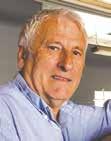
Why is it that as the weather gets better and the sun starts to shine, my drinking habits start to change? It’s a mystery — why I exchange my glass of Malbec for something much lighter. I don’t want to believe the idea that there is a thing called “summer wine ,”but the reality is I drink more white wine in the summer than any other time. I blame this on advertising.
Have you ever seen anyone frolicking on the beach with a glass of Cabernet? Or golf buddies drinking port wine after a round? Of course not. Summer, and anything on ice, is the norm in these enticing commercials. I will admit that something light and refreshing does have a thirst-quenching appeal, but let’s not forget that tasty red wine is always good, no matter what season.
Wine drinking in general is down, especially in Europe, where wine is so ingrained in the culture. It’s hard to imagine. In the States, wine drinking is lower, but still popular. The highest growth market for


 By Marc Roland
By Marc Roland
wine is in the wine-based cocktails, low-calorie seltzers, and fruity wine drinks. Why? Because this is what a new generation of wine drinkers prefer, and marketing campaigns are built around trends. I don’t really mind. The fact is, wine tastes good in any form. Do the trends reach me and influence my decisions? Yes, and for the better. Summer wine is a “thing.” You should open your mind to it and try some of the offerings out there.
Let’s start with good old white wine. Not your grandma’s chardonnay, but some exciting and mouth-tingling whites from Austria and Portugal. My favorite is Vinho Verde (green wine). My friend Gerry turned me on to this gem a few years ago. This is the best value of white wine I know about. For under $10 you can get a quality imported wine from the Duero Valley in Portugal. Insanely crisp, with a bit of sparkle and dry enough to please even the most sophisticated pallets. Some may say tart. It’s the lemonade of wine. Try Gazela Vinho Verde (Cost Plus). Not far behind in summer goodness is a lesser known grape,
Grüner Veltlinner, grown mostly in Austria and the Czech Republic. Think lime, lemon, and grapefruit. Summer personified. The acidity will make your mouth happy and your stomach hungry. Sauvignon blanc and pinot gris drinkers will love the citrus notes, but will also enjoy the textural complexity, especially some veins of herb and pepper. Try Chateau Ste. Michelle Grüner Veltlinner (available at Total Wine, maybe Fred Meyer).
The other wine that screams summer is bubbly. Skip the Champagne and go directly to Spain. I’m sure you are familiar with Italian Prosecco, but
the Spanish version is Cava. Cava will smack you with balanced citrus, melon, pear, and a pleasant acidity. Because Cava is made in the same style as Champagne, it’s a great bet for the times when you wish for Champagne but you do not wish to spend a fortune. Why don’t we drink more of it? It is affordable and festive. No summer party should go without it as a starter to a fun time.
Wine cocktails are delicious. Switch out your hard liquor for a few months and save on calories and high alcohol. No one wants to get dehydrated when its hot. Besides, you can drink longer and enjoy your activities more.
Spritzers and fruit-infused drinks are killing the market right now and there is a reason why. They are delicious and refreshing. The classic wine spritzer is a combo of white wine and sparkling water. Simple. Instead of reaching for a glass of wine, just add some H2O and you will outlast your more undiluted friends and wake up in the morning ready to start again.
If mixing your own drinks is not one of your attributes, you can try winebased seltzers by Woodbridge or a local favorite San Juan Seltzer (available at Safeway). The number one selling drink in America now is White Claw. Don’t be fooled. This is not wine, but manufactured malt alcohol. I highly recommend you try the many winebased seltzers. I will not think less of you if you bring a can or two to my next party!

Monthly feature coordinated by Alan Rose

 By Paula Stepankowsky
By Paula Stepankowsky
Paul Auster’s new biography of Stephen Crane is a brilliant blend of biography, history and literary criticism, as fascinating to those with a deep knowledge of Crane as those who are just learning about his groundbreaking work.
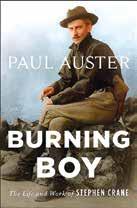
His war reporting, ironically done after he wrote The Red Badge of Courage, is well treated. While Crane’s skill as a novelist and short-story writer is known, his work as a muckraking journalist receives much-needed attention.
So much of what he wrote about — class division, income inequality, racism, the individual’s place in an uncaring world — still torments our society today.
Crane emerges from the pages as flesh and blood. Auster has done a superb job excavating his early years which formed him into the social commentator who would lay the groundwork for the modern American novel in the twentieth century.
After a conventional upbringing as a minister’s son, Crane’s restless intelligence propelled him to seek the unusual, the ironic, and the misfit elements in late-19th century America. The Gilded Age jousted with extreme poverty in Crane’s own life as in the lives of his characters. He was always pressed for money due to his own free-spending and generosity to friends. But even the stories he wrote under a debt-repayment deadline show his characteristic brilliance.

His final months of ill-health, brought on by tuberculosis and overwork, are also well covered, leading the reader to think that Stephen Crane’s early death at age 29 was one of American literary history’s greatest losses.

•••

A native of Spokane, Paula Stepankowsky has lived in Longview since 1980, where she was a feature and business reporter for The Daily News and then the Pacific Northwest reporter for Dow Jones Newswires/The Wall Street Journal . After returning to graduate school, she became a middle school English teacher at St. Rose School in Longview. She serves on the boards of LifeWorks and the Longview Public Library, as well as volunteers for Cowlitz County Child Advocates, Friends of the Longview Library, and the Special Olympics.

 TERRY BARNES GRAMBO Investment Adviser Representative
TERRY BARNES GRAMBO Investment Adviser Representative

“A reader lives a thousand lives before he dies.”
George R. R. Martin
Brought to you by Book Sense and Pacific Northwest Booksellers Association, for week ending April 30, 2023, based on reporting from the independent bookstores of Alaska, Washington, Oregon, Idaho and Montana. For the Book Sense store nearest you, visit www.booksense.com


PAPERBACK FICTION HARDCOVER FICTION HARDCOVER NON-FICTION CHILDREN’S ILLUSTRATED EARLY & MIDDLE GRADE READERS
1. A Court of Thorns and Roses
Sarah J. Maas, Bloomsbury Publishing, $19
2. The Seven Husbands of Evelyn Hugo Taylor Jenkins Reid, Washington Square Press, $17
3. Legends & Lattes Travis Baldree, Tor, $17.99
4. The Priory of the Orange Tree Samantha Shannon, Bloomsbury Publishing, $20
5. Sea of Tranquility Emily St. John Mandel, Vintage, $17
6. The Invisible Life of Addie LaRue
V. E. Schwab, Tor, $19.99
7. The Thursday Murder Club Richard Osman, Penguin, $18
8. The Four Winds Kristin Hannah, St. Martin’s Griffin, $18.99
9. Circe Madeline Miller, Back Bay, $16.99
10. Under the Whispering Door TJ Klune, Tor, $18.99
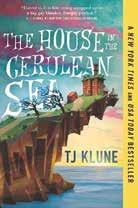
PAPERBACK NON-FICTION
1. Crying in H Mart: A Memoir Michelle Zauner, Vintage, $17
2. Cascadia Field Guide: Art, Ecology, Poetry Cmarie Fuhrman (Ed.), Mountaineers Books, $29.95
3. Braiding Sweetgrass Robin Wall Kimmerer, Milkweed Editions, $20
4. The Body Keeps the Score Bessel van der Kolk, M.D., Penguin, $19
5. All About Love: New Visions bell hooks, Morrow, $16.99
6. OMFG, BEES! Matt Kracht, Chronicle Books, $15.95
7. Tiny Beautiful Things (10th Anniversary Edition) Cheryl Strayed, Vintage, $17
8. Killers of the Flower Moon David Grann, Vintage, $17
9. What My Bones Know Stephanie Foo, Ballantine, $18
10. Caste: The Origins of Our Discontents Isabel Wilkerson, Random House, $20
$18.99
paperback
1. Happy Place Emily Henry, Berkley, $27
2. Lessons in Chemistry Bonnie Garmus, Doubleday
3. In the Lives of Puppets TJ Klune, Tor, $28.99
4. Tomorrow, and Tomorrow, and Tomorrow Gabrielle Zevin, Knopf, $28
5. Remarkably Bright Creatures Shelby Van Pelt, Ecco, $29.99
6. Demon Copperhead Barbara Kingsolver, Harper, $32.50
7. Hello Beautiful Ann Napolitano, The Dial Press, $28
8. Tress of the Emerald Sea Brandon Sanderson, Tor, $29.99
9. The Trackers Charles Frazier, Ecco, $30
10. A Psalm for the WildBuilt Becky Chambers, Tordotcom, $20.99
1. The Wager David Grann, Doubleday, $30
2. A Fever in the Heartland Timothy Egan, Viking, $30
3. Poverty, by America Matthew Desmond, Crown, $28
4. The Creative Act: A Way of Being Rick Rubin, Penguin Press, $32
5. I’m Glad My Mom Died Jennette McCurdy, Simon & Schuster, $27.99
6. Don’t Tell Anybody the Secrets I Told You: A Memoir Lucinda Williams, Crown, $28.99
7. Monsters: A Fan’s Dilemma Claire Dederer, Knopf, $28
8. Project 562: Changing the Way We See Native America Matika Wilbur, Ten Speed Press, $50
9. You Could Make This Place Beautiful: A Memoir Maggie Smith, Atria/One Signal Publishers, $28
10. Atomic Habits James Clear, Avery, $27
Linus Baker is a middle-aged caseworker with the Department in Charge of Magical Youth. Extreme Upper Management sends him to investigate an orphanage of special children on the coast.
Linus would be one of Eliot’s Hollow Men, a Walter Mitty without the daydreams. Prizing order and routine, he carries with him the 900+-page RULES AND REGULATIONS wherever he goes. His world is a rather joyless, gray sameness.
1. Remember Joy Harjo, Michaela Goade (Illus.), Random House Studio, $18.99
2. Goodnight Moon Margaret Wise Brown, Clement Hurd (Illus.), Harper, $8.99
3. The Very Hungry Caterpillar Eric Carle, World of Eric Carle, $10.99
4. Woo Hoo! You’re Doing Great ! Sandra Boynton, Little, Brown Books for Young Readers, $17.99
5. Good Night, Gorilla Peggy Rathmann, G.P. Putnam’s Sons Books for Young Readers, $8.99
6. Brown Bear, Brown Bear, What Do You See? Bill Martin Jr., Eric Carle (Illus.), Henry Holt and Co. BYR, $8.99
7. Bluey: Camping Penguin Young Readers, $5.99
8. Hot Dog Doug Salati, Knopf Books for Young Readers, $18.99

9. Party Hearty Kitty-Corn Shannon Hale, LeUyen Pham (Illus.), Harry N. Abrams,$18.99
10. Baby Orca: Finger Puppet Book Yu-Hsuan Huang (Illus.), Chronicle Books, $7.99
By Alan Rose“Why are (the townspeople) like this?”
1. Are You There God? It’s Me, Margaret. Judy Blume, Atheneum Books for Young Readers, $9.99
2. The Moth Keeper: A Graphic Novel
K. O’Neill, Random House Graphic, $13.99
3. School Trip: A Graphic Novel Jerry Craft, Quill Tree Books, $14.99
4. When You Trap a Tiger Tae Keller, Yearling, $8.99
5. Hatchet

Gary Paulsen, Simon & Schuster Books for Young Readers, $9.99
6. Bea Wolf
Zach Weinersmith, Boulet (Illus.), First Second, $19.99
7. Allergic
Megan Wagner Lloyd, Michelle Mee Nutter (Illus.), Graphix, $12.99
8. Swim Team
Johnnie Christmas, HarperAlley, $12.99
9. Super Extra Deluxe Essential Handbook (Pokémon) Scholastic, $14.99
10. A Wolf Called Wander Rosanne Parry, Greenwillow Books, $7.99
Prepare for the End of Days! Your time has come, and the rivers will run with the blood of the innocents!” Talia sighs. “He’s such a drama queen.”
Alan’s haunting novel of the AIDS epidemic, As If Death Summoned, won the Foreword INDIES Book of the Year Award
(LGBT category.)
He can be reached at www.alan-rose.com.
The orphanage contains only six children: Talia is a gnome, and thereby a master gardener; Phee is a forest sprite; Sal, a black teenager who’s been badly abused in the foster system, shapeshifts into a fluffy Pomeranian whenever scared, which is much of the time; Theodore is a wyvern, a mythical two-legged winged creature (I had to look it up, too); and Chauncey is a… well, no one’s really sure what Chauncey is, a kind of big-hearted, jelly-fish-like creature who dreams of becoming a bellhop when he grows up.
“I don’t pretend to know the minds of men,” she said, hands tightening on the steering wheel as a woman on the sidewalk appeared to shield her chubby, squawking children away from the car. “They fear what they don’t understand. And that fear turns to hate for reasons I’m sure even they can’t begin to comprehend. And since they don’t understand the children, since they fear them, they hate them. This can’t be the first time you’ve heard of this.”
– from The House in the Cerulean Sea
Fantasy can get us back in touch with the make-believe world we knew as children. Not current with the state of young adult (YA) literature, I sought out an authority, a 13-yearold avid reader. She enthusiastically recommended this book, a funny, charming fantasy with a punch. and 6 days old. He, too, has been abandoned—but why would we ever expect Satan to be a model parent?
Think Miss Peregrine’s Home for Peculiar Children , only with the Antichrist. Linus is at first unnerved by these extraordinary children. “I am evil incarnate,” Lucy roars. (Imagine a 6-year-old having an especially bad day.)
Overseeing and protecting the orphans is the kindly Arthur Parnassus, who believes each child is special and has special gifts if nurtured and given the freedom to develop them. Even Lucy. Especially Lucy. Arthur recognizes them as unique beings, each to be valued for the special experiences and talents he or she possesses. Not surprisingly, to the townsfolk, they are monsters.
Like Linus, the reader may initially find the children unsettling, but soon comes to see them as, yes, okay, maybe strange, but also strangely wonderful beings. The book could be read simply as a plea to respect and value differences, but that is only half the story. This whimsical, sweet and humorous tale suggests that we not just tolerate differences but celebrate them, for they can enrich, enhance, and add color to our own lives, changing one’s monochrome world into something absolutely cerulean.
The sixth child is Lucifer, son of Satan, called Lucy, who is 6 years, 6 months,
“I am the blight upon the skin of this world. And I will bring it to its knees.
•••
Send your non-commercial community event info (name of event, beneficiary, sponsor, date & time, location, brief description and contact info) to publisher@crreader.com
Or mail or hand-deliver (in person or via mail slot) to:
Columbia River Reader
1333-14th Ave
Longview, WA 98632
Submission Deadlines
Events occurring:
June 15–July 20 by May 25 for June 15 issue. July 15 - Aug 10 by June 25 forJuly 15 issue
Calendar submissions are considered for inclusion, subject to lead time, relevance to readers, and space limitations.
See Submission Guidelines below.
Letters to the Editor (up to 200 words) relevant to the publication’s purpose — helping readers discover and enjoy the good life in the Columbia River region, at home and on the road — are welcome. Longer pieces, or excerpts thereof, in response to previously-published articles, may be printed at the discretion of the publisher and subject to editing and space limitations.

Items sent to CRR will be considered for publication unless the writer specifies otherwise. Writer’s name and phone number must be included; anonymous submissions will not be considered.
Political Endorsements CRR is a monthly publication serving readers in several towns, three counties, two states and beyond and does not publish Letters to the Editor that are endorsements or criticisms of political candidates or controversial issues. (Paid ad space is available.)
Unsolicited submissions may be considered, provided they are consistent with the publication’s purpose. Advance contact with the editor is recommended. Information of general interest submitted by readers may be used as background or incorporated in future articles.
Outings & Events calendar (free listing): Events must be open to the public. Non-profit organizations and the arts, entertainment, educational and recreational opportunities and community cultural events will receive listing priority. Fundraisers must be sanctioned/sponsored by the benefiting non-profit organization. Businesses and organizations wishing to promote their particular products or services are invited to purchase advertising.
Call to Artists Annual Show St Helens, Ore Sat, May 20, 5–8pm. St. Helens Community Center, 2625 Gable Road, St Helens. Look for signs. Sponsor: Columbia Arts Guild, St. Helens. Open to artists showing original art, limit 10 original pieces. Entry fee per piece by CAG members $3, non-members $5. Entries accepted on May 20, 9-11am at the Center. Info; Joan Youngberg, text/phone 503-369-1081. columbiaartsguild.com
2023 Student Art & Design Show Thurs, June 1, 4:30–6:30pm. Forsberg Art Gallery, Lower Columbia College Rose Center. Student Art Show Reception; The Salal Review Launch Party; Student Pottery Sale. Info: lowercolumbia.edu/gallery.
From Page to Stage CRRPress Gala Centennial Book Launch & Variety Show. June 30. Details, page 2.
Fundraising Breakfast Hosted by Cowlitz Valley VFW Auxiliary #1045. 9–10:30am. June 10, and the second Saturday every month at the VFW Hall, 4311 Ocean Beach Hwy, Longview. Eggs, sausage, biscuits and gravy, French toast, toast, coffee, orange juice and water. $7 per person. Proceeds support Veterans programs. Public welcome.
Lower Columbia Genealogical Society Public Zoom meetings 2nd Thurs, 6pm. Visitors welcome, instructions, announcements. Program with guest speaker 7pm. For a Zoom link: lcgsgen@yahoo.com.
Longview-Kelso Bridge Club Plays weekly, Monday
10:30am, Thurs 6:30pm. Kelso Senior Center, 106 NW 8th Ave., Kelso, near Rotary Spray Park. Free, open to everyone, adults of all ages welcome. Come play, or come watch and see if it looks like fun. Info: Jan, 360-425-0713.
Stella Historical Society Museum reopens the weekend after July 4, 2023, 11–4. Watch for news about annual “Kid’s Day” celebration. Located at 8530 Ocean Beach Highway (10 miles west of Longview), Free admission; donations always welcome. For museum tours in the off season, call 360-423-3860 or 360-423-8663. Also available for Scouting tours, Eagle Scout projects and high school “community service” hours. For more info check Facebook
Longview Country Club invites the public to help celebrate the club’s Centennial with “Play with a Member” and Taylormade Golf club fitting events, both on Sunday, June 4 2023.
The first 100 golfers to reserve a tee time get to play with a Club member at reduced greens fees: $50 with a cart seat, $30 walking. Call the Pro Shop at 360-425-3132 and sign up, max of three players in one group. Tee times available between 11am--4pm.
The Pro Shop will need contact information and average 18-hole scores to appropriately match your group with a member, who will share some nuances of the golf course and its challenging greens.
Warm up your swing on our golf simulator! Check out our centennial membership package!
To sign up for the club fitting, go to: myfittingexp.taylormadegolf.com.
The revived Raymond Carver Writing Festival is back for its second year with an emphasis on poetry. Anis Mahgani, Oregon’s Poet Laureate, will be an honored guest.
The Festival kicks off on Friday, May 19 in Clatskanie
Beginning at 1pm: Visit the pop-up booth for information about the festival, hear readings of Raymond Carver poems, receive a map for a self-guided walking tour of Raymond Carver birthplace, mural and sculpture; visit the Clatskanie Historical Museum at “The Castle” and enjoy lunch at a local restaurant.. Purchase a keepsake poster and/or T-shirt (as supplies last)
4 pm: Free showing of the movie, “Short Cuts,” based on Carver works, at the Clatskanie Cultural Center. Free popcorn.
Enjoy dinner on your own
6–9pm: Evening Reception, Cultural Center Ballroom.
“Who is Raymond Carver and why does Clatskanie honor him?” Presentation by Oregon’s Poet Laureate, Anis Majgani
•Local writer groups will host tables with information
•Light Refreshments as you enjoy connecting with others
•Commemorative bookmarks in collaboration with the C.C. Stern Foundry Saturday, May 20 in the Clatskanie Cultural Center
•Presentation by Oregon’s Poet Laureate, Anis Maigani
•“Carver: Beyond Short Fiction” by Michael Mills, host of the Raymond Carver Podcast
•Finding Your Voice as a Writer;
•Mini Zines for Beginning Writers; How to Get Published;
•Beginning Haiku
Winners of the youth Poetry contest will present their poems in the Birkenfeld Theatre at 4:30
Dinner (no host) will be held in the Ballroom at 5:30. Reservations required. Poetry Jam will follow the dinner from 7–9pm. Winners of the adult Poetry contest will kick off the evening.
Visit raymondcarverwritingfestival.org for more information and updates.

Call leader to join outing or for more info. Non-members welcome.
(E) - Easier: Usually on relatively flat ground (up to 5 miles and/or less than 500 ft. e.g.)

(M) - Moderate: Longer and more elevation gain (over 5 miles and/or over 500 ft. e.g.)
(S) - Strenuous: Long hikes and/or elevation gain (over 8 miles and/or over 1200 ft. e.g.)
May 17 - Wed Millersylvania State Park (E)
Drive 120 miles RT. Hike 5 miles with little e.g. around the perimeter trail. Leader: John R. 360- 431-1122
May 20 - Sat Dry Creek Falls via PCT (M)
Drive 168 miles RT. Hike 4.4 miles out and back with 885’ e.g. Enjoyable forest hike. The hike can be extended for those who want a longer hike. Leader: Mary Jane M. 360-430-7905
May 24 - Wednesday Hidden Falls - Silver Star Area (M/S)
Drive 150 miles r.t. Hike 11.5 miles with 900’ e.g. to the falls on Coyote Creek on the Tarbell Trail. This out and back hike is mostly under canopy with views of Silver Star Mountain and Mt St Helens. Leader: Bill D. 503-260-6712
May 27 - Sat Archer Mountain (M/S)
Drive 150 miles RT. Hike 4.1 miles with 1,597’ e.g. Up a steep trail with views of the Columbia River Gorge, looking from the Washington side. Leader: Joe H. 360-430-8447
May 31 - Wed Sandy River Delta (E)
Drive 114 miles RT. Hike on a flat 3.5 mile loop through Sandy River flood plain. Leader: Bruce: 360-425-0256
June 2 - Fri Portland Urban Hike (M)
Drive 120 miles RT. Hike 8 milesRT with 50’ e.g. from downtown Portland along the west side of Willamette River Walk.
Leader: Bill D. 503- 260-6712
June 3 - Sat Coldwater Lake via Lakes Trail (M) Drive 120 miles RT. Hike 8.8 miles out and back with 750’ e.g. along the NW shore of the lake. Beautiful views and abundant wildflowers. Leader: Dory 213820-1014
June 7 - Wed Lake Sacajawea (E) Walk 4 miles around the whole lake or walk half the lake for 1.5+ miles. Leaders: Chere 360-200-3715, Linda J. 360-431-3321
June 10 - Sat Kwis Kwis Trail (E/M) Drive 110 miles RT. Hike 7.5 miles r.t. with 1,054’ e.g. Begin & end at the Fort Clatsop Visitor’s Center. This is a forested hike with a great view of the ocean on a good day. This hike has some e.g. but is not too difficult. Leader: Linda J. 360-431-3321
June 14 - Wed Frenchman’s Bar Bicycle Ride (E) Drive 80 miles RT to Vancouver Lake Regional Park. Ride bicycles 5-10 miles on paved path. Leaders: Josie 360353-3135, Bruce 360-425-0256
June 17 - Sat Flicker, Towhee, Upper Marquim Hill and Council Crest Trails (M) Drive 114 miles RT. Hike 8 miles out and back with 1,525‘ e.g. Rated a moderate hike due to steady 4-mile uphill trek through forest to Council Crest. Leader: John M. 360-508-0878
Above: watercolorized sketch by the late Deena Martinson
Few musical artists résumés list membership in a band inducted into the Rock & Roll Hall of Fame; fewer still can lay claim to being a founding member of the seminal band credited with creating Country Rock; and only one artist can include all the above in addition to being half of one of the most successful duos of the 1970s.
Jim Messina’s legacy of musical genius spans five decades, three super groups, and a vibrant solo career.

Jim’s songwriting credits include “House on Pooh Corner” “Angry Eyes” “Traveling Blues” and “Your Mama Don’t Dance.” He has spent the last 50 years writing and singing folk, rock and country music that has left an indelible mark on the world. From Loggins and Messina, to Poco and Buffalo Springfield, Jim has released eight hit records and sold more than 16 million albums. After a series of solo acoustic tours, Jim Messina formed a band made of acclaimed musicians who have played with him at various points in his career.
May 19 • 7:30pm • Columbia Theatre, Longview, Wash.
Tickets $22.50–60.00 • BOX OFFICE: 360-575-8499
1231 Vandercook Way, Longview www.columbiatheatre.com


Saturday, May 20 • Noon – 9pm
Grand Entries 1pm and 7pm FREE Admission • Open to the Public
Native American Dancing, Drumming
Arts & Crafts Vendors • Adult & Children’s Raffles
All Drums & Dancers Welcome
First 5 Drums Paid (paid drums must stay both sessions)
Kelso High School
1904 Allen St, Kelso, Wash.
I-5 Exit 39, east on Allen St, approx. 1/4 mile
General Info: Mike & Sue Brock 360.703-5892 or 360.703-5907
Linda Bonahoom 360.751-0484
Vendor Info: Sandra Gaskill 360.846-0117 https://kelsochildrenpowwow.wixsite.com/my-site

Presented by the Kelso Powwow Committee, Inc., PO Box 445, Kelso, WA 98626 No alcohol or drugs. Patrolled by on-site security. Sponsors not responsible for theft, injury, damage or vandalism both on and off premises. Any animals brought on site are the responsibility of the owners
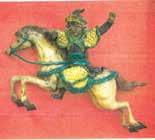
A gift from Dr. and Mrs. H. Minthorn to the community via Lower Columbia College Foundation, The Minthorn Collection of Chinese Art encompasses a wide range of styles and is displayed in the upper level of the art gallery in LCC’s Rose Center, open Tues-Thurs, 10–3. Free.

1418 Commerce Avenue, Longview Mon thru Sat, 11–4. Visit the Gallery to see new work. For event updates check our website: the-broadway-gallery.com, at Broadway Gallery on Facebook, and broadway gallery longview on Instagram.
Featured Artists: May: Guest Artist Eileen Eddleman, painting; Member Artist Noel McDonald, ceramics.
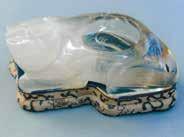
June: “I Am 100 Years.”
Retrospective Show of Gallery Artists honoring Longview’s Centennial
Join
June 1• 5:30–7pm
Join
HOURS Tues - Sat 11–4
Classes and Workshops are Back! Check our website or come into the Gallery. We are a great place to buy gifts! Layaway and Free Gift Wrap on request.
Voted one of top 3 Galleries in SW Washington.
Find a unique gift! We have beautiful artisan cards, jewelry, books by local authors, wearable art, original paintings, pottery, sculpture, photographs and so much more





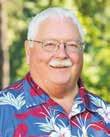





In honor of Historic Preservation month this May, local preservation groups, state historical societies, and business and civic organizations across the country celebrate through events that promote historic places and heritage tourism, and that demonstrate the social and economic benefits of historic preservation.
The Cowlitz County Historic Preservation Commission is a homegrown organization, established in 2016, when Cowlitz County Commissioners foresaw an opportunity to foster civic and neighborhood pride in the beauty and accomplishments of the past, and a sense of identity based on Cowlitz County history. They through adopted the Historic Preservation Ordinance.

In 2018, the Commission approved a Cowlitz County Heritage Plan, which sets purpose, goals, and strategies to create ways for all people to actively use, enjoy, and learn about Cowlitz County’s heritage. Engaging in this work, each year preservation commission members attend as many community events as the rain and winter darkness or summer heat allow. The Cowlitz County Fair, sQuatch Fest, and Woodland’s Planters’ Days are just some of the public events where commissioners and volunteers connect with history through people in the County. This year, commissioners plan to expand outreach at the Castle Rock Fair and Ryderwood’s Centennial celebration.
The current focus of the Commission is on the lives and experiences of residents, often uncovering the significance of buildings and places in the County. At outreach events, history begins with a question: What was it like to live at a particular time in history? Commissioners ask people about their lives: What is it like to ride a school bus through our spectacular landscapes?’ What do you remember about your ride and how did the view change?’ Where did you go to school?’ If you or someone you know has stories and memories about Cowlitz County history to share, please reach out to us at longrange@cowlitzwa. gov or 360-577-3042.
Recently, the commission completed the Cowlitz Trail Project, tracing the series of footpaths, waterways, and early wagon roads from Fort Vancouver to Puget Sound. Used since time immemorial, this corridor connects people to food, commerce, population centers, and industry. The Commission documented this corridor of transportation through a grant from the State Department of Archaeology and Historic Preservation. Local museums, historians, tribes, and the Fort Vancouver
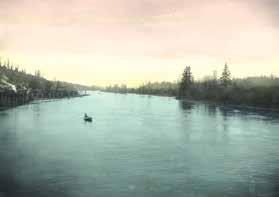
The Cowlitz County Historic Preservation Commission invites readers to explore the videos, maps, pictures, graphics and information in Cowlitz Trail project and learn more about the historic trails, ports, and waterways of Cowlitz County.
National Historic Site contributed to the project. The resulting multimedia experience includes a series of videos about how local waterways, ports, and history connect us. Some of the stories share personal, transformative experiences along the Cowlitz, Columbia, and Lewis Rivers, which weave across Cowlitz County.
Trade, exploration, transportation Maps, graphics, videos and research completed for the project reveal Cowlitz County’s position as a key link in a chain of trade, exploration and transportation routes that bind the state together. The route of the Cowlitz Trial, pioneer wagon roads, and Pacific Highway traversed Cowlitz County from Fort Vancouver to South Puget Sound. The Project traces how the Cowlitz trail is derived from the geologic marvel of the Yellowstone Hot Spot that stretches to Haystack Rock, the Ice Age Missoulian Floods, and Glaciation of Mt. Rainer’s longest glacier and river. To tell this multifaceted history, four separate pamphlets were developed for the Cowlitz Trails project: Geology, Mountain Connections, the Settler Era 1840-1873, and Pacific Highway.
An excerpt from the Pacific Highway topic below explains why in Cowlitz County pioneers generally hugged the topography to avoid as many river and swamp crossings as possible: The time from the end of the 1800s to the mid-1900s marks the transition from foot and horse traffic on the Pacific Trail to automobiles. In Cowlitz County, that transition involved improving mud-covered paths, to different pavements and ending in asphalt or concrete. Riverside lowlands often produced very difficult travel conditions. For example, to cross the Kalama River flats by car, a driver had to hire a team of horses to pull through the mud. If the horses were hired before starting through, the fee was $10. If it was hired after the car was stuck, it was $20. And after escaping the mud, drivers had to take the hills such as Carrols Bluff. The paving of the highway, beginning in 1914, was a welcome relief.
The project also provides historical information about important river links that once bound the nation together, such as the trans-continental Northern Pacific Railroad’s railroad ferry SS Tacoma between the Port of Goble, Oregon, and the Port of Kalama, Washington. The City of Longview owes its location to the massive 10-mile delta that the Cowlitz River created, which was drained and leveed to be suitable for development. Each river in Cowlitz County has been changed by nearby communities. From early settlements and agriculture, to the development of the local paper industry, people have always used the water. Fishing and logging continue to play an important part in our local economy and identity.
•••
COWLITZ TRAIL CORRIDOR website: https://www.co.cowlitz. wa.us/2200/HistoricPreservation-Commission
Short videos on the website: Walk and ride the trail through these videos:
•Lt. Commander Wilkes on the Cowlitz River
•From the Cowlitz Trail to Military Road
•Edward Jay Allen on the Cowlitz Trail

Public Educational Posters and Pamphlets
Check out four large format educational posters. Online, click on each poster to expand it across your screen, or drop by one of our upcoming events* to read it at full size.
•Southwest Washington Geology
•Across the Mountain Connections
* Settler Era
•Pacific Highway
First-person narrations, personal memories
• Saving Salmon on the Lower Columbia
• The Cowlitz at Gearhart Gardens
• The Port of Kalama, History and Future
• Boatbuilding on the Cowlitz
• Diesel Engines on the Water
• Building a Home in 1892
• A Paddle Back in Time
• Columbia River Crisis
*Visit Cowlitz Trail Project at upcoming events, including:
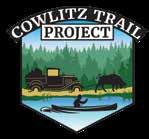
Ryderwood: Celebrating 100 Years of History, July 28–30
Cowlitz County Fair, July 26–29
Castle Rock Fair, July 13–15
sQuatchFest – Jan 27–28
Woodland’s Planters’ Day, June 15–17
Sunday, May 18, 1980, was supposed to be another ordinary weekend for my mom and her parents. They were staying at the family cabin on Hayden Lake, just over the Idaho border from Spokane.
Morning was passing when my mother and grandparents espied, approaching from the southeast, what one family member later described as “the meanest looking thunderstorm in all of mankind.” The radio confirmed what my amateur-geologist parent already suspected: that Mt. St. Helens had erupted.
Grabbing the dog, everyone jumped into the family’s rickety red Toyota and fled for Spokane. The little Toyota careened around tight curves and blind corners, my grandfather hellbent on making it to their Spokane house before the ash cloud hit.

They reached Interstate 90 with light ash falling onto the highway. Before them loomed a darkness as black as the oncoming wall of night. My mother recalls being within a couple miles of the South Hill when “it appeared all life had been snuffed out.” The air became dense as ash rained down and darkness fell. For the next hour the little Toyota creaked along, its headlight beams failing to pierce the impenetrable, ashen darkness.
After what seemed an eternity they arrived at the house. The days that followed felt apocalyptic. (In a rather ironic parallel to present times, it was essential to wear masks if one went outside. The effects of silicon ash hitting the lungs were more immediate than COVID-19).
My parents retained an abiding fascination and respect for Mount St. Helens. The year before they moved to Longview they drove up the Toutle
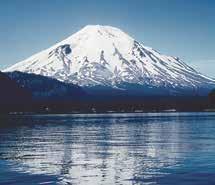
 By Tom Lee
By Tom Lee
Valley on Hwy 504 until they reached a floodplain. There, the old highway promptly disappeared and a small Forest Service trailer marked the
After a swarm of earthquake activity under the mountain the previous day, on October 2, 2004, my parents and I went to Johnston Ridge to hopefully catch a glimpse of the action. There I experienced one of the greatest thrills
of my nerdy teen years: witnessing the mountain erupt. It was only a minor steam eruption. However, it was still thrilling to watch a volcanic eruption in real time in my own backyard.

furthest extent of the debris field of the lahar, which filled the valley of the north fork of the Toutle River after the lateral blast. Looking east up the floodplain, the dusty crater of Mount St. Helens loomed over all.
Fast forward a decade to my childhood, in Longview. The bottle of Mount St. Helens ash my parents kept in the basement fascinated me. The lid was partially corroded from the sulfuric nature of its contents. The ash had a fine, silky texture that exuded a slight sulfur odor when the bottle was shaken.
The “mountain” was a constant presence in childhood. We first summited St. Helens as a family in 1999. So began a family tradition of annually ascending the mountain through 2005, when volcanic activity interrupted that tradition. It was during the mountain’s 2004 awakening that I experienced my fleeting 15 seconds of fame on local television.
Harry Truman managed to achieve legendary status in his storied life and determined death. He also created lasting memories for Longview people and the greater Northwest.
“My mother was born in 1933,” recalled Marybeth Cranston of Longview, “her father, Bill Swift, worked for Standard Oil Company and was an avid fisherman.” Her mom, Marilyn, often accompanied her own dad (Marybeth’s grandfather) on fishing trips throughout her childhood.
“Their favorite place to stop to buy bait was at the Mount St. Helens Lodge gas station.” Marilyn’s dad would stop to shoot the breeze with Harry Truman, although “she was a little afraid of Harry and his gruff exterior. He usually smelled like alcohol and used a lot of bad words that were new to Marilyn.” Her dad chuckled and called him a character.
Marilyn and her dad had an unspoken agreement not to tell her own mother about Harry Truman. “Harry had a reputation for bootlegging, womanizing and profanity,” said Cranston, “all things Marilyn’s mom was not on board with.”
Marilyn’s dad took their special secret relationship to the grave with him. His daughter Marilyn remained his only confidante and fishing partner, and went on to teach her own daughter, Marybeth, how to become a fisherwoman.
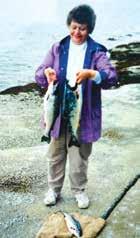
Together they fished Lake Cushman, the Kalama and the Columbia together, happily.
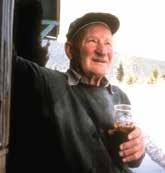
volcano’s place in their lives, 43 years after eruption
Perhaps sensing their tort liability as much as any actual danger to the public, the authorities immediately evacuated Johnston Ridge. During the subsequent evacuation, I managed to push my way forward behind a geologist speaking at a live press conference. Grinning like an idiot, with my bouffant teenage hair bobbing up and down, I managed to make an uninvited guest appearance on local television. It did not go unnoticed by classmates, parents, and exasperated teachers.
I basked in my glorious 15 seconds of fame. In retrospect though, the deserving local celebrity should have been a guy cruising down Spirit Lake Highway in an RV blasting Jimmy Buffett’s “Volcano” from a boombox.
Mount St. Helens is like an extended family member to us. We fought snow banks and nasty blackberries to make it to the Arch on Coldwater Peak. We traversed the Blast Zone to Loowit Falls in scorching summer heat.

Nothing was more miserable, however, than the arduous hike between Ape Canyon, the Plains of Abraham, and Windy Ridge. Subsequently named “the Bataan Death March” by the children who endured that multi-family day expedition, that infamous hike only reinforced the mountain’s constant presence throughout childhood. At least Burgerville milkshakes sort of compensated for that character-building exercise.
The years continue; we summit every couple of years, in light of fierce competition to obtain a climbing permit. For all the loss and devastation the mountain inflicted, we are truly blessed to have it as our neighbor.
Happy 43rd Eruption Anniversary, Mount St. Helens!
Longview’s spirit of Do-It-Yourself applies to fun and games, too.
Early residents of the Planned City loved to form clubs and organizations and they spawned and grew rapidly despite, or perhaps because of, tough economic times and hardships.
In December 1935, the Longview Ski Club held its inaugural meeting of 37 charter members.

They dubbed themselves the “Ski-Larks,” with a mind to encouraging more people to take up the winter sport. A year later they were sponsoring weekend visits to Mounts
By Hal CalbomRainier, Hood and St. Helens. “They encouraged many others to come along,” said club historian Kathy Demarest, “offering instructions, a ride to the mountain, and good fun.”

Soon the club began lobbying the Columbia National Forest for a land permit to build a warming hut at timberline on Mt. St. Helens. With the license granted, six volunteers set to work and, according to Demarest, “By winter of 1938 folks began recording stays at the cabin, affectionately called Lumbago Lodge.”

This was recreation not for the faint of heart. “After a two-hour drive in snow to timberline, there was a three-mile hike with equipment and provisions on your back to the lodge,” said Demarest. Many times skiers had to dig into the lodge through the upstairs window to get inside.
“Oh, but the skiing on Mt St. Helens was worth it!” she recalled. “Miles and miles of untouched snow and vistas galore.” Members of the Longview Club were charged 10 cents a night to stay overnight, providing you brought your own bedroll and were willing to bunk on the floor. Gradually conditions were improved, with addition of a portable ski tow to get up the mountain. The ever-entrepreneurial Harry Truman even ran a sno-cat up the mountain in the 50s and 60s.
Fees were increased, but not dramatically: members could pay $10 a year to use the complete services of the now notorious Lumbago Lodge. Over the years the Club grew with the times, as destination lodges began to proliferate and their early passion for the slopes became more widespreadl. The club facilitated the birth of the Ski Jacks, Ski Scots and Ski Devils, and took longer trips to regional resorts.
But, alas, when rumblings of Mount St. Helens began, members became concerned about the future of Lumbago Lodge, which they’d expanded over the years to accommodate16 more skiers. “Members collected items including the ladder, the ski tow, and log books,” said Demarest, “and when St. Helens erupted, Lumbago Lodge was put to rest.”
The club itself shows no signs of resting, however, and proudly celebrated its 88th year looking to further boost the sport, their camaraderie, and the memory of beloved Lumbago Lodge.

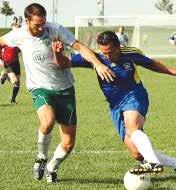

Betterweather is one the way! That means plenty of opportunities for outdoor activities. Whether your game is golf, tennis, softball, soccer, hiking, or biking, you can always count on the stellar team at Longview Orthopedic Associates to get you back in the action if you suffer a sportsrelated injury.


Longview Orthopedic Associates has been providing sports medicine care to local prep, club, college, and recreational athletes since 1983.
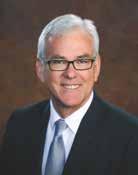


Several LOA physicians have sub-specialty training and certification in sports medicine and have provided services to professional sports teams in the Seattle and Los Angeles areas.

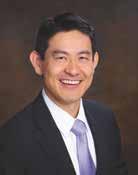



An added bonus is that LOA is located at Pacific Surgical Institute, where MRI and physical therapy services are available onsite for your convenience.

Over dinner one night recently, I told my husband I couldn’t decide what to write about this month. He asked me about the most common questions in our Master Gardener Plant Clinic this time of year. I replied that lawn care is at the top of the list. He said, “Well, there’s your article!”
I have a love-hate relationship with lawns. Yes, a lovely verdant spread of soft grass under bare feet is a little bit of heaven. But personally, I think we need to lose lawns. They use too much water, pollute our streams and rivers from overfertilization, and are pollinator deserts. It requires so much work, expense, and resources to keep a lawn lush and green.
This is a rant for another time, but I would encourage
everyone to start small but begin replacing lawns with new planting beds. Just the place to plant drought-resistant shrubs and perennials— natives, when possible—to welcome our beneficial insects. Check out eco-lawns, too: low upkeep, low-growing plants that need little to no fertilizing and mowing.

Lawn Maintenance
Clean-Ups • Bark • Soil
Planting • Pruning
Aeration • Fertilization
Weed Control
Retaining Walls • Patios
Sprinkler Systems
Installation/Repair/Maintenance
Blackberry Removal
Tree Planting & MORE!
FREE ESTIMATES •REFERENCES
J.J. Landscaping
360-241-6889 or 360-762-9220
However, if you have a lawn and are not ready to give it up yet, here are some tips for having the lawn you’ve always wanted and still being environmentally friendly. Keeping your lawn very dense is the best way to protect it from insects, diseases, weeds, and moss. Several activities can help to achieve it: frequent mowing, weeding, timely fertilizing, regular overseeding, proper watering, aerating, and de-thatching (are you sure you don’t want to shrink your lawn and make new easy-care planting beds?).
Most lawns should be mowed to about 2-3 inches. You may have to mow twice a week in spring to keep it that height. The taller the grass, the deeper its roots will grow, making your lawn more drought resistant. Use a mulching blade on your mower—you can return the clippings to the lawn, adding nitrogen back into the
Kalama resident Alice Slusher volunteers with WSU Extension Service Plant & Insect Clinic. Call 360-577-3014, ext. 1, or send question via cowlitzmastergardener@ gmail.com.

soil. And no raking! Never remove more than one-third of the height at one cutting. If you let it get away from you, you’re better off making several passes over a week’s time.
Under-fertilized lawns are pale green or brown, sparse, weedy, and often have moss. The most important time to fertilize is in late fall to help the grass get off to a great start in spring. If you mulch-mow during spring and summer, that’s the equivalent of another fertilizer application with no added work or expense on your part! And you are protecting our waterways from the effects of fertilizer over-use.

OSU Extension Columbia County 503-397-3462
Online Workshops: Registration is required. extension.oregonstate.edu/county/columbia/ events
Gardening Spot on KOHI (1600am radio) Every Saturday, 8:05 to 8:15am.
May 16 (6:30–8pm) Chat with Chip online interactive Q&A program. Reserve a place: http:// beav.es/STR
May 25 How Flowers and Plants Get their Colors, Col. County Master Gardener Chapter meeting. OSU Ext. Office, 6:30pm.
WSU Extension Cowlitz County 360-577-3014
304 Cowlitz Way, Kelso, Wash.
For connection info or registration for in-person classes: cowlitzcomg.com/public-events)
May 16 May 16, 5:30pm In-person Planning to Save Seeds. Longview Public Library

Online Workshops. Tues., noon:
May 16 Vertical Gardening
May 23 Managing Moles
May 30 Growing Ripe Tomatoes in Pacific NW
June 4 Native Plants in Landscaping
June 13 Drip Irrigation: How-to
June 20 Choosing Landscape Plants
June 27 Protecting Your Plants from Heat
Watering your lawn — decision time. Are you planning to let your lawn go dormant and brown over the dry summer months? It will save you from regular watering, but unirrigated lawns are prone to moss and weed growth and can’t withstand high traffic.
If you choose to irrigate your lawn, plan on giving it 1-2 inches of water per week. If it’s hot and dry, water more; if it’s cooler, use less. The trick, according to research at OSU, is to apply the water incrementally during the week, never more than ½ inch at a time. How do you measure an inch? Place a tuna can in your lawn as a measuring cup and turn on the sprinklers. Note the time it took to reach an inch, and divide that time into five weekly morning watering sessions. Regular overseeding is necessary, and dethatching and aerating should be done as needed. Sounds like a lot of work to me! Wouldn’t you rather start minimizing your lawn and creating easy-care, pollinator-friendly planting beds?
When my dad decided to build the family home on Pacific Way, it felt like we were growing up way, way out in the country. Now it feels like a short drive. The lot was three houses from Country Club Drive. We did have neighbors, including Edith Meek and her daughter next door.They boarded a horse in the front yard, giving the neighborhood a rural feel.
My good friend Don Soderlund lived on the other side of the Meeks. Don and I walked the quarter-mile to and from Columbia Valley Gardens Elementary School

nearly every day for six years. David Minthorn and family now occupy Don’s former house. I have many fond memories of visiting the Soderlunds.
The Everett Flood family lived on the other side of us. Everett owned the Washington Pulp and Timber Company. The summer that I was 18, Everett hired me as a night watchman to patrol the mill which had burned down earlier that year. There was an old dog on the property named Shep. Shep and I would take hourly tours of the property to make sure nothing untoward was going on. Nothing ever was. I do have a confession, however. On two occasions, I invited a few friends to the millsite, where we engaged in forklift races on the dike.
Somehow I learned that Everett’s wife, Marge, had been a Portland Rose Festival Princess in 1937. Our family went to Portland for several years to watch the parade. Marge was the first celebrity I’d ever known. She was a warm-hearted woman who treated us kids like we were her own. And the Rose Festival tradition is still going strong,with this year’s Grand Floral Parade set for June 10.

Everett and Marge had two sons. Allan and his younger brother Phil were around the same age as my younger brother Perry. Their cousin Ken Gollings, who was my age, spent a lot of time visiting the Floods. We became good friends. A few years ago, Ken re-connected with me, having discovered the Columbia River Reader That led to dinner in Astoria with Ken and his wife.
I called Marge recently and was pleased to learn that she remains as sharp as the proverbial tack.
Marge is turning 103


In partnership with Brian Magnuson, Cowlitz PUD’s live-feed osprey camera is now in its eighth season. The camera focuses on a platform Cowlitz PUD built more than 20 years ago near a utility pole to provide a safe nesting alternative from our energized power lines.
The osprey migrated from their winter home and arrived in Cowlitz County in late March. The female osprey typically lays three eggs in late April and the eggs will hatch in early June. Join us in watching nature unfold on our live streaming platform at: https://www. cowlitzpud.org/about/osprey-cam/.

years old this month. What a milestone! She is older than Longview and, like Longview, still glowing.

She has seen so many changes. Think of all the inventions and events since 1920. Two world wars, a trip by astronauts to the moon, the cellphone, television and don’t forget Facebook and self-driving cars.
Having reconnected with Marge’s son Allan has also been delightful. He and his wife, Nancy, live in Bend,Oregon. They are subscribers to the Reader. I even purchased Allan’s two published books.

I’m very pleased to re-connect with a woman from my past who is still alive and thriving. Happy Birthday, Marge!
•••
Be sure to download our “Survival for Osprey and You” children’s activity posters. These posters illustrate how to stay safe near power lines, while sharing how our osprey have adapted for survival. We welcome you to bring the Osprey Cam into your home and introduce our educational posters to the children in your life. Posters are available on our webpage. Also, enjoy our new and improved camera’s equipped with sound, bringing you closer to nature.
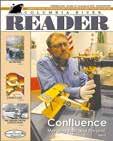
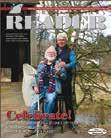
What really — truly — happened during those final wind-blown, rain-soaked thirty days of the Lewis and Clark Expedition’s trek to the Pacific? Southwest Washington author and explorer Rex Ziak revolutionized historical scholarship by providing the answers: day by day and week by week. We’re delighted to offer In Full View, and Rex’s other two books, one with an extraordinary fold-out map, as our inaugural offerings from CRR Collectors Club.
IN FULL VIEW
Rex Ziak $29.95
A true and accurate account of Lewis and Clark’s arrival at the Pacific Ocean, and their search for a winter camp along the lower Columbia River.
EYEWITNESS TO ASTORIA
Gabriel Franchére $21.95
The newly edited and annotated by Rex Ziak version of Franchére’s 1820 journal, Narrative of a Voyage to the Northwest Coast of America in the Years 1811, 1812, 1813 and 1814, or The First American Settlement on the Pacific.
DOWN AND UP
Rex Ziak $18.95
A unique fold-out guide mapping day-by-day Lewis and Clark’s journey from the Rockies to the Pacific Ocean and back.
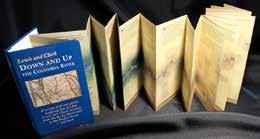
Books by Rex Ziak
ANNUAL SUBSCRIPTION
11 issues $55.
SUBSCRIPTIONS MAKE THOUGHTFUL GIFTS... FOR YOURSELF OR FOR A FRIEND!

We’ll send your recipient a printed gift notification card.
THE TIDEWATER REACH
Field Guide to the Lower Columbia River in Poems and Pictures
By Robert Michael Pyle and Judy
VanderMaten. In three editions:
• Boxed Signature Edition Color and BW $50;
• Collectors Edition,Trade paperback. Color and B/W $35
• Trade paperback B/W $25
DISPATCHES FROM THE DISCOVERY TRAIL
A Layman’s Lewis & Clark
By Michael O. Perry.
• Collectors Edition,Trade paperback. Color and B/W $35
In Full View ___@ $29.95 = ______________



Eyewitness to Astoria ___@ $21.95 = ______________


Down and Up ___ @ $18.95 = _____________
The Tidewater Reach – Three Editions

Color/BW Boxed Signature Edition ___ @ $50.00 = ______________
BW Edition ___ @ $25.00 = ______________
Color / BW Collectors Edition ___ @ $35.00 = ______________
Dispatches from the Discovery Trail
Color/BW Collectors Edition ___ @ $35.00 = ______________
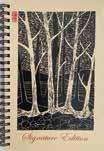
Collectors Club Subscription
11-issue CRR Subscription __ @ $55 = _________________


Start with next issue; For gift Subscription* enter info at left.
ORDER SUB-TOTAL
Washington residents add sales tax 8.1%________________
For Books: Add Shipping & Handling $3.90
TOTAL __________________________
